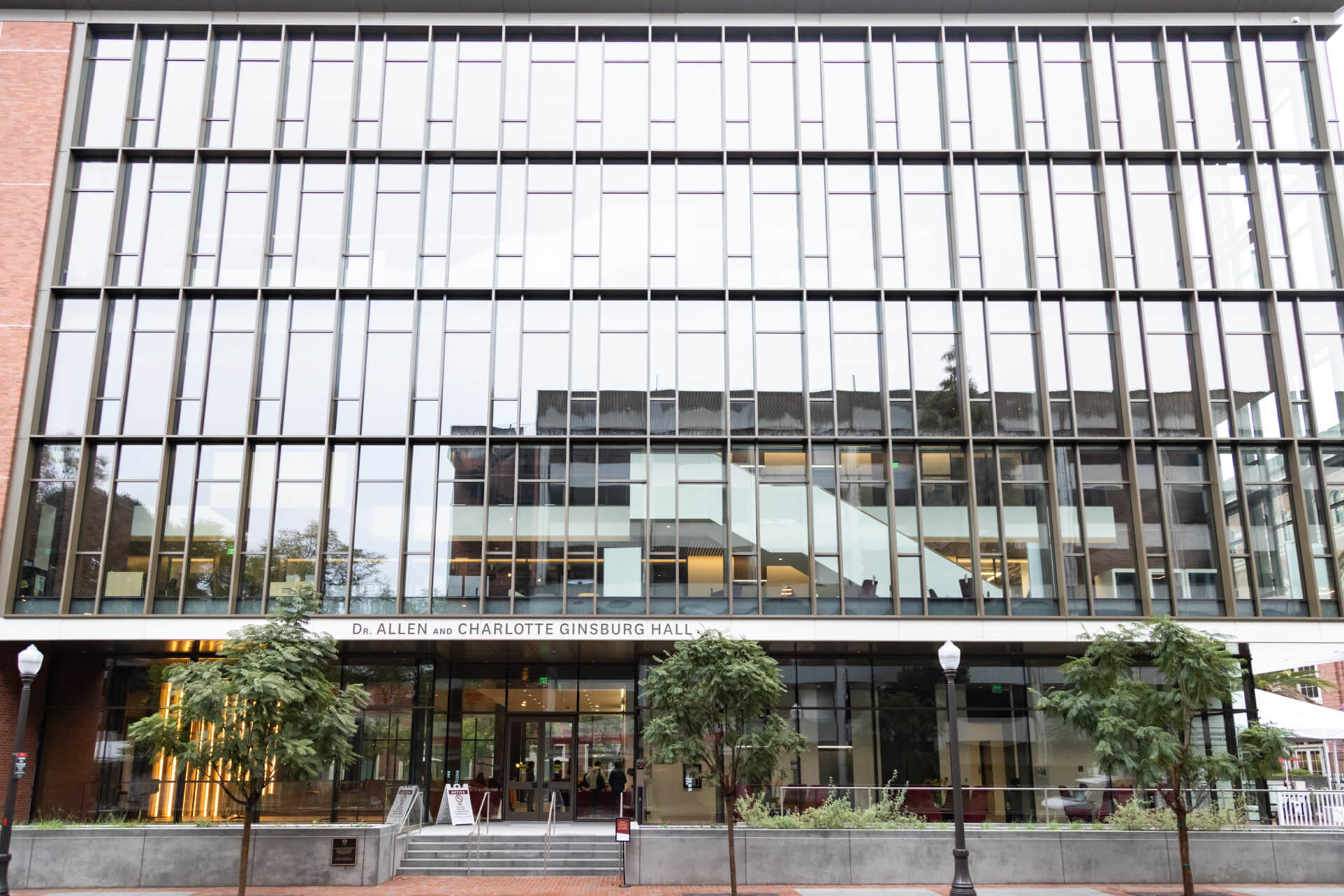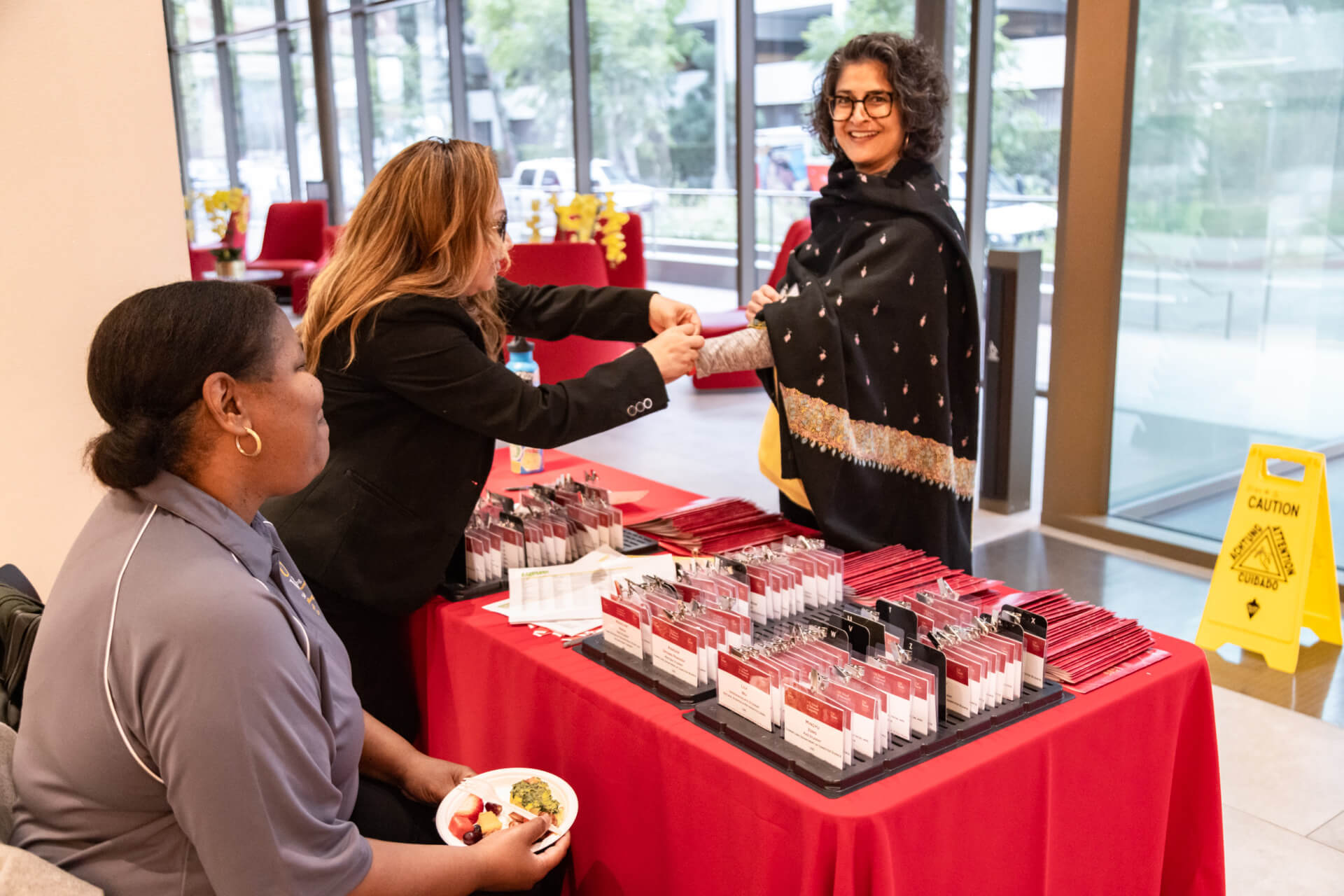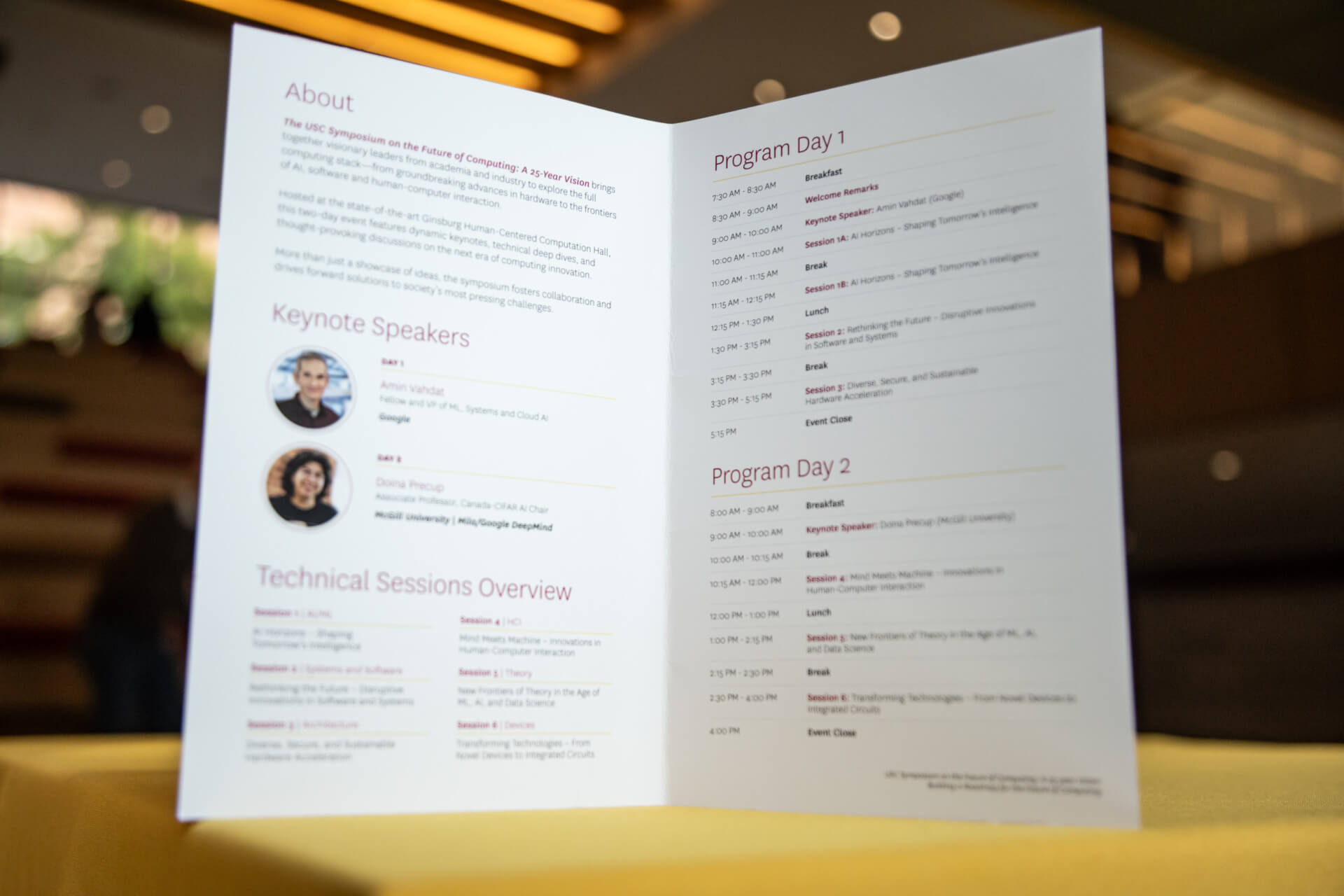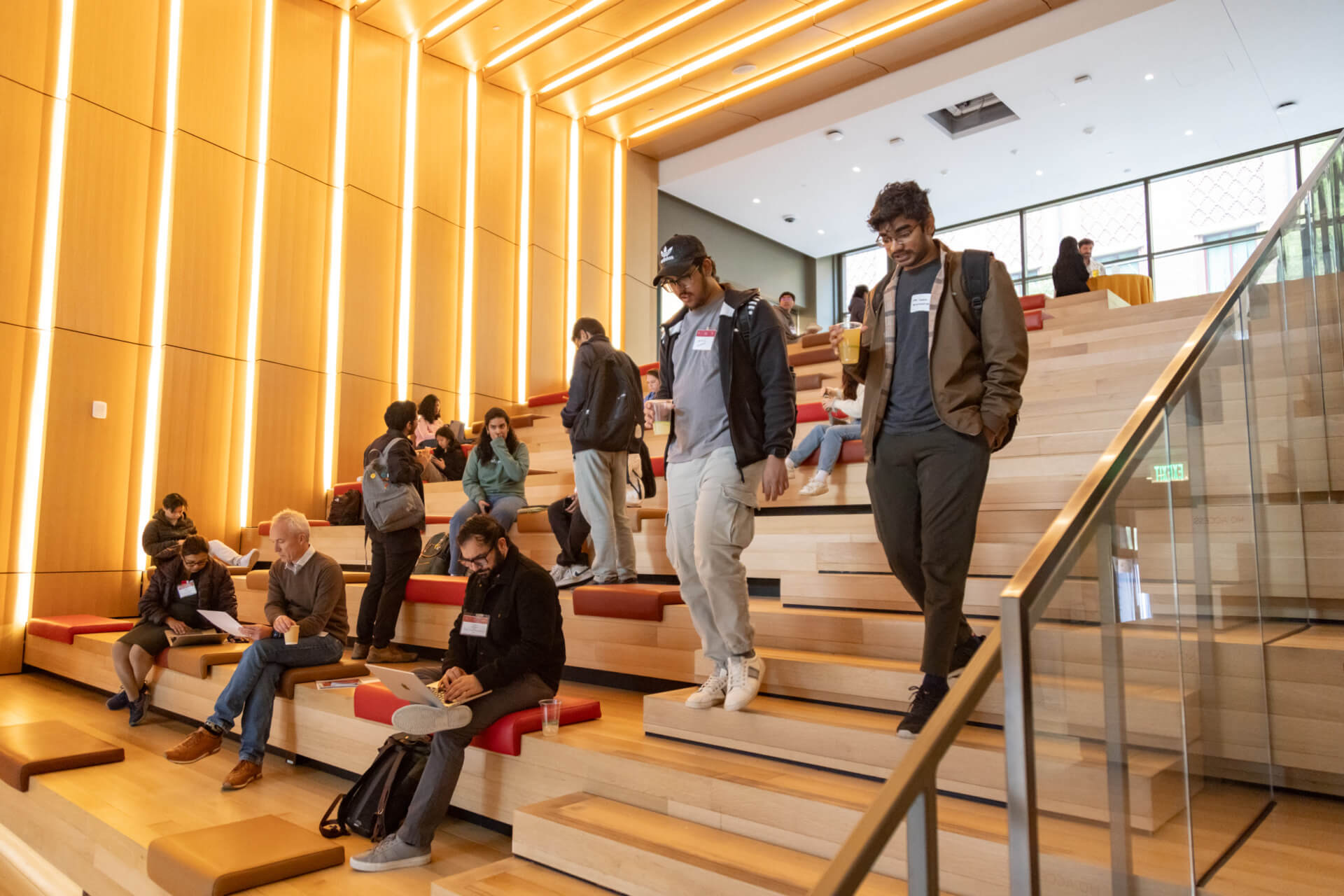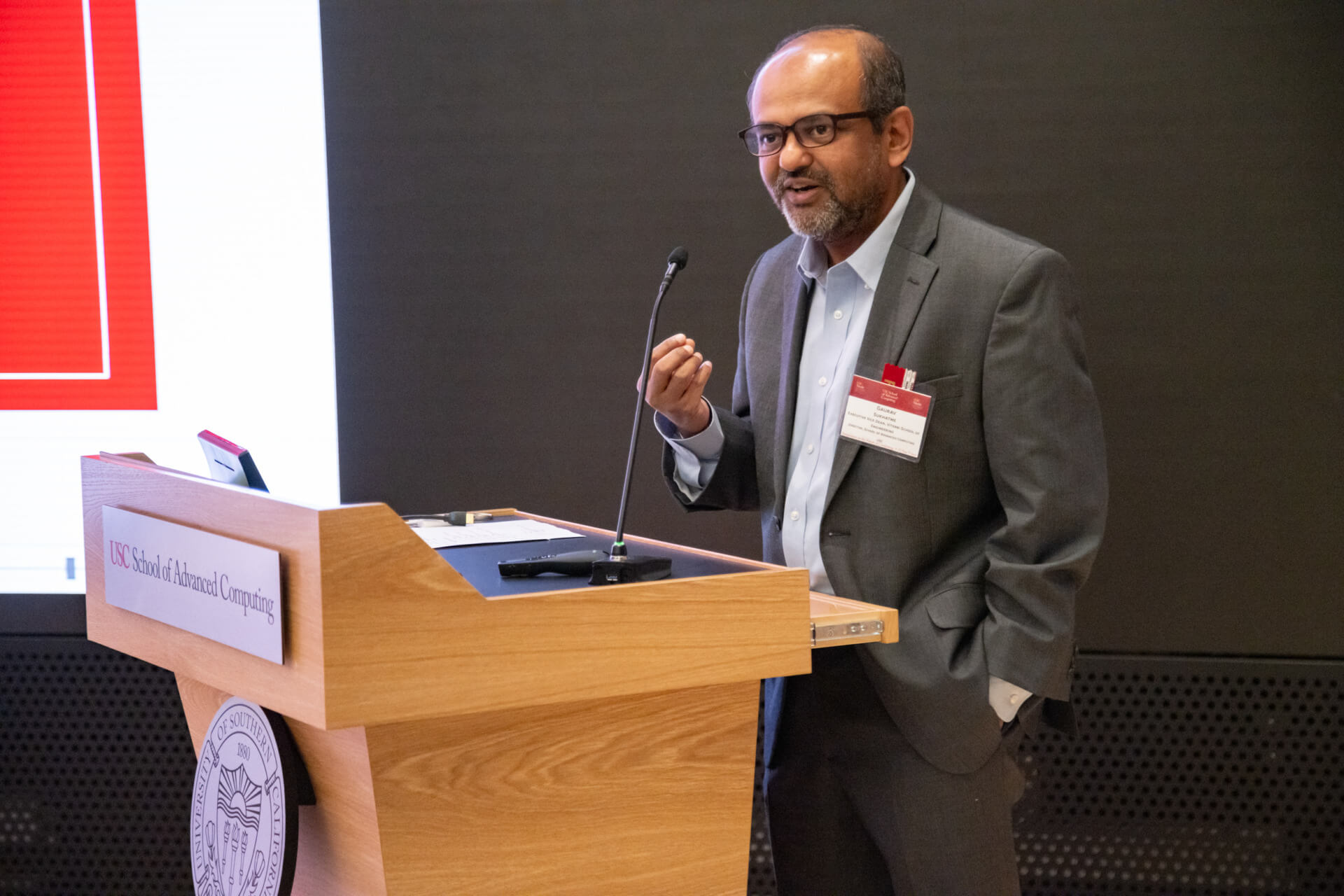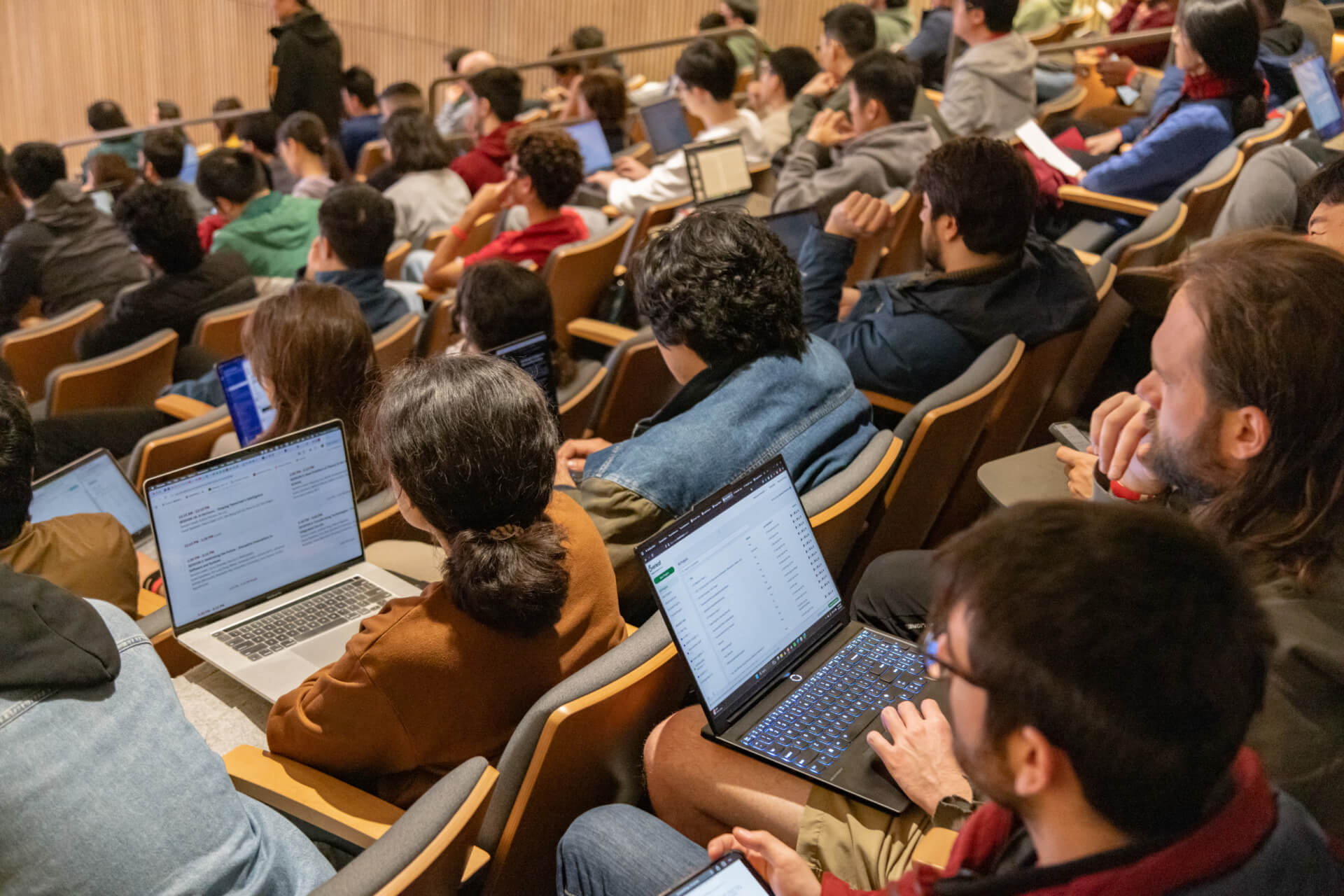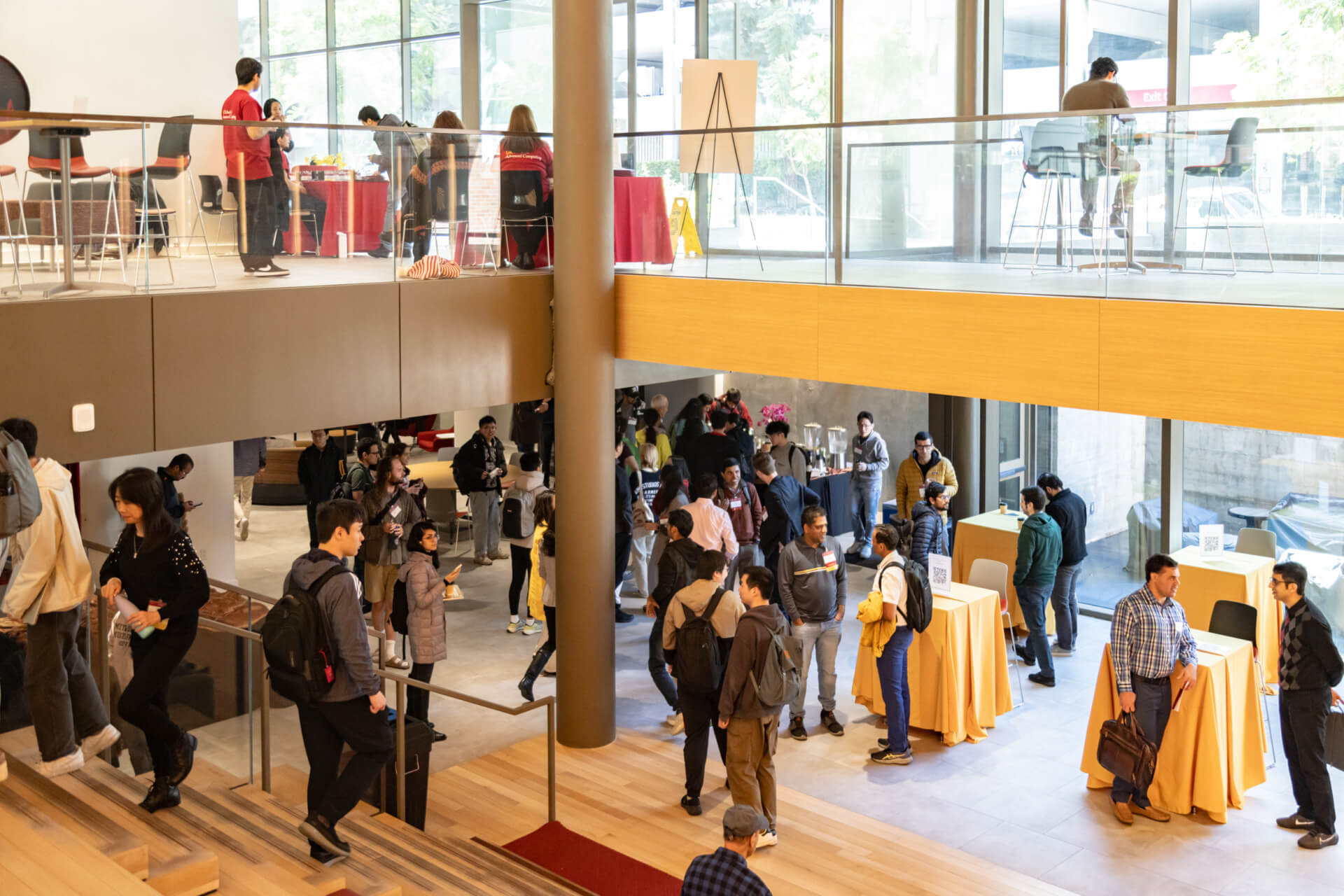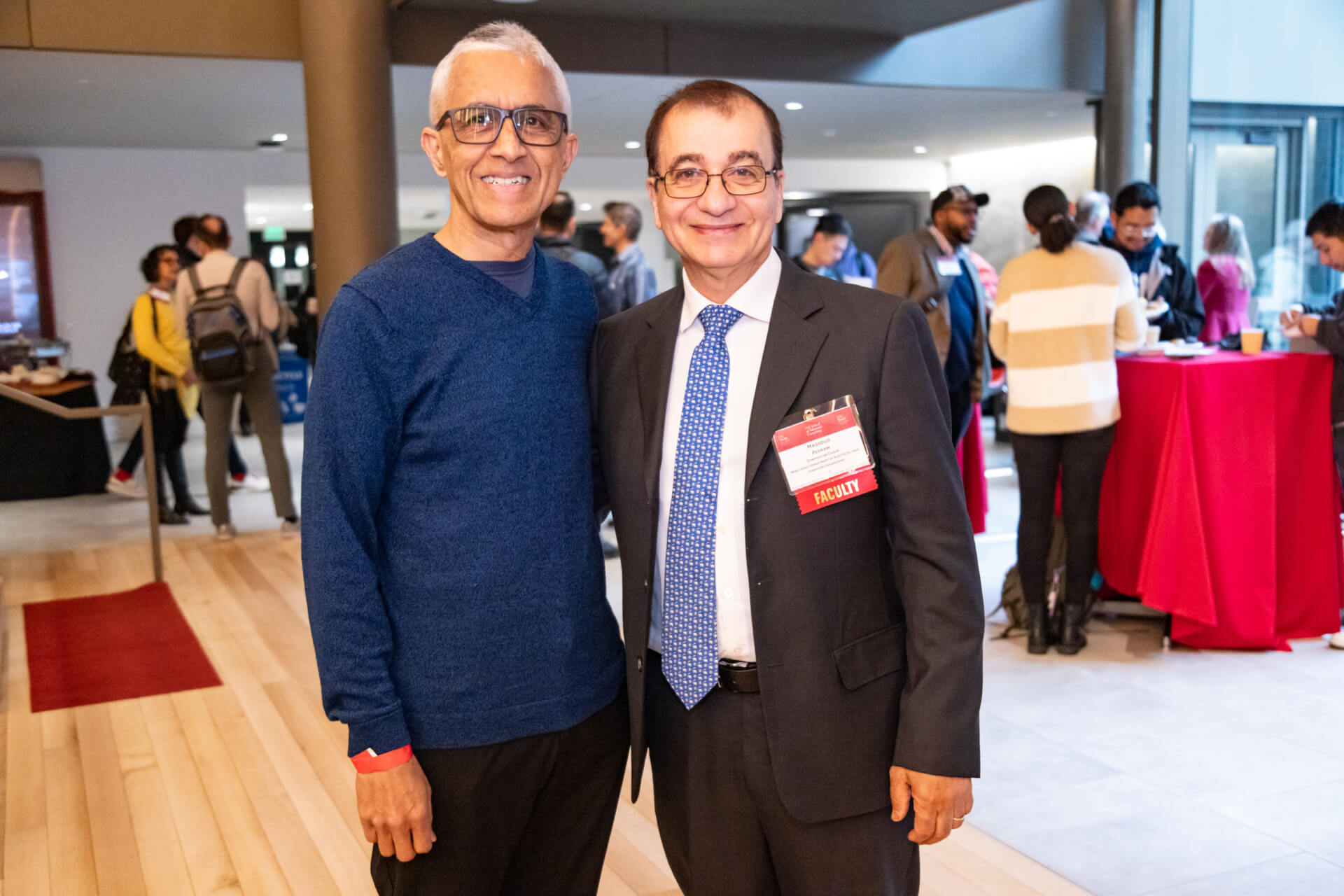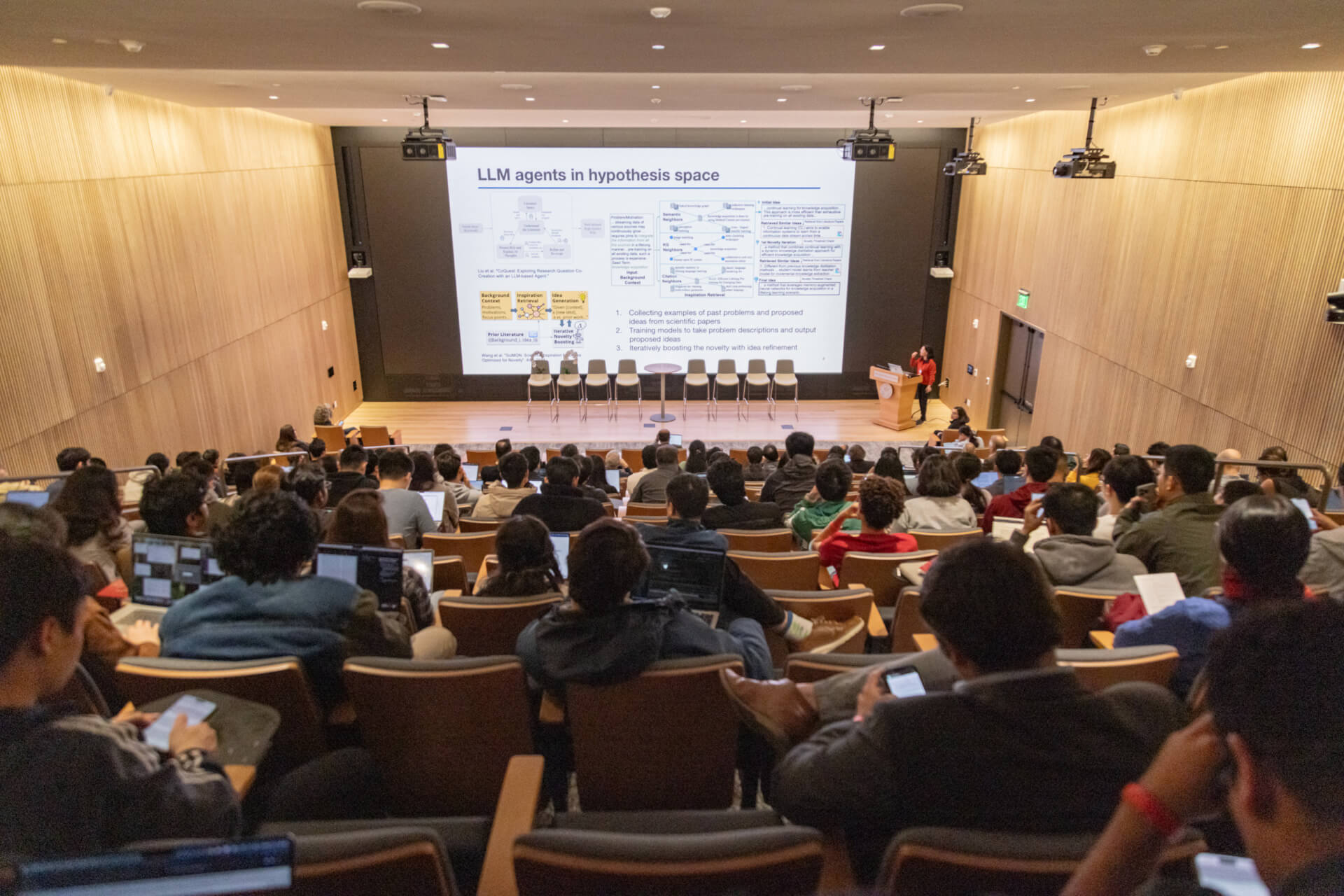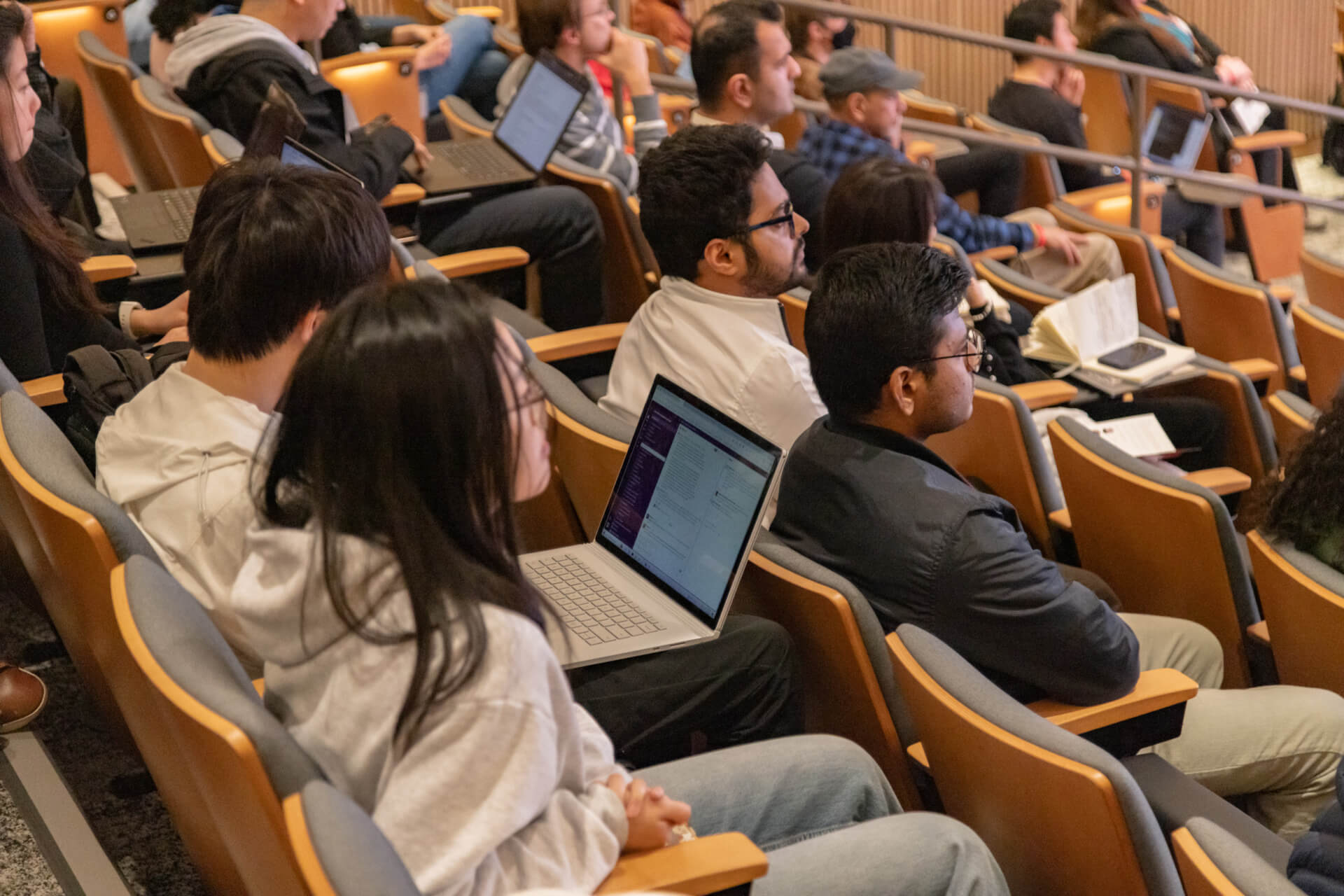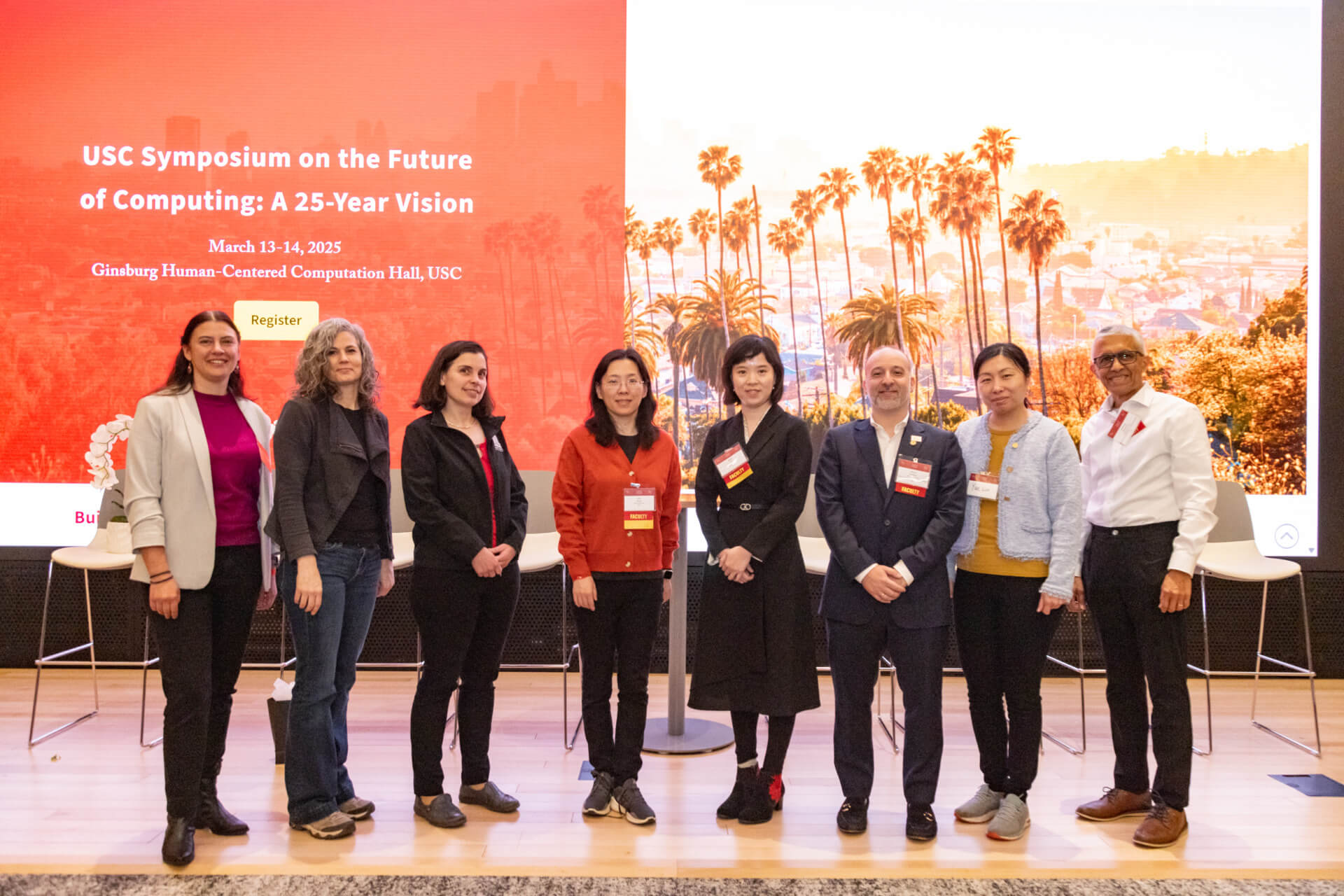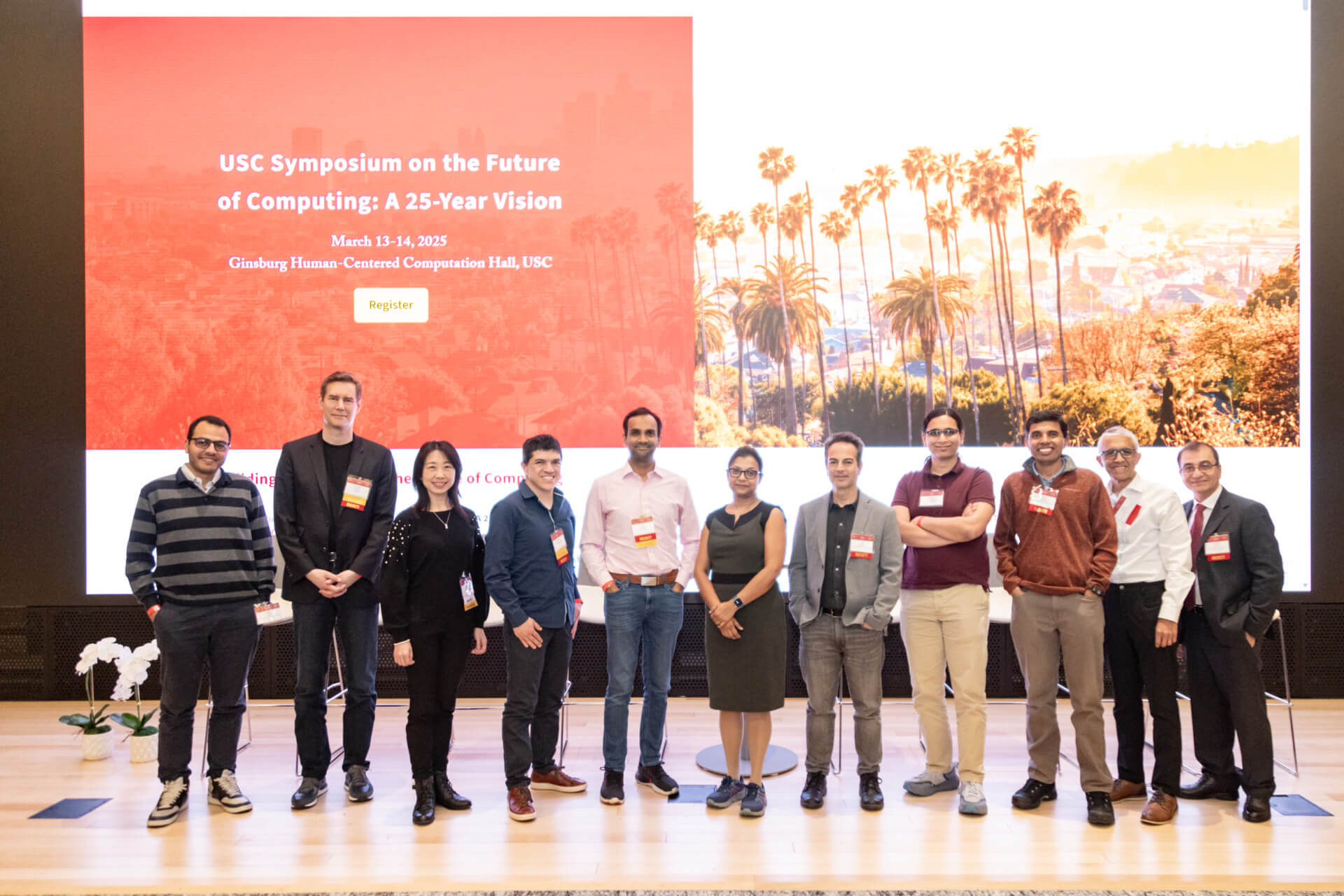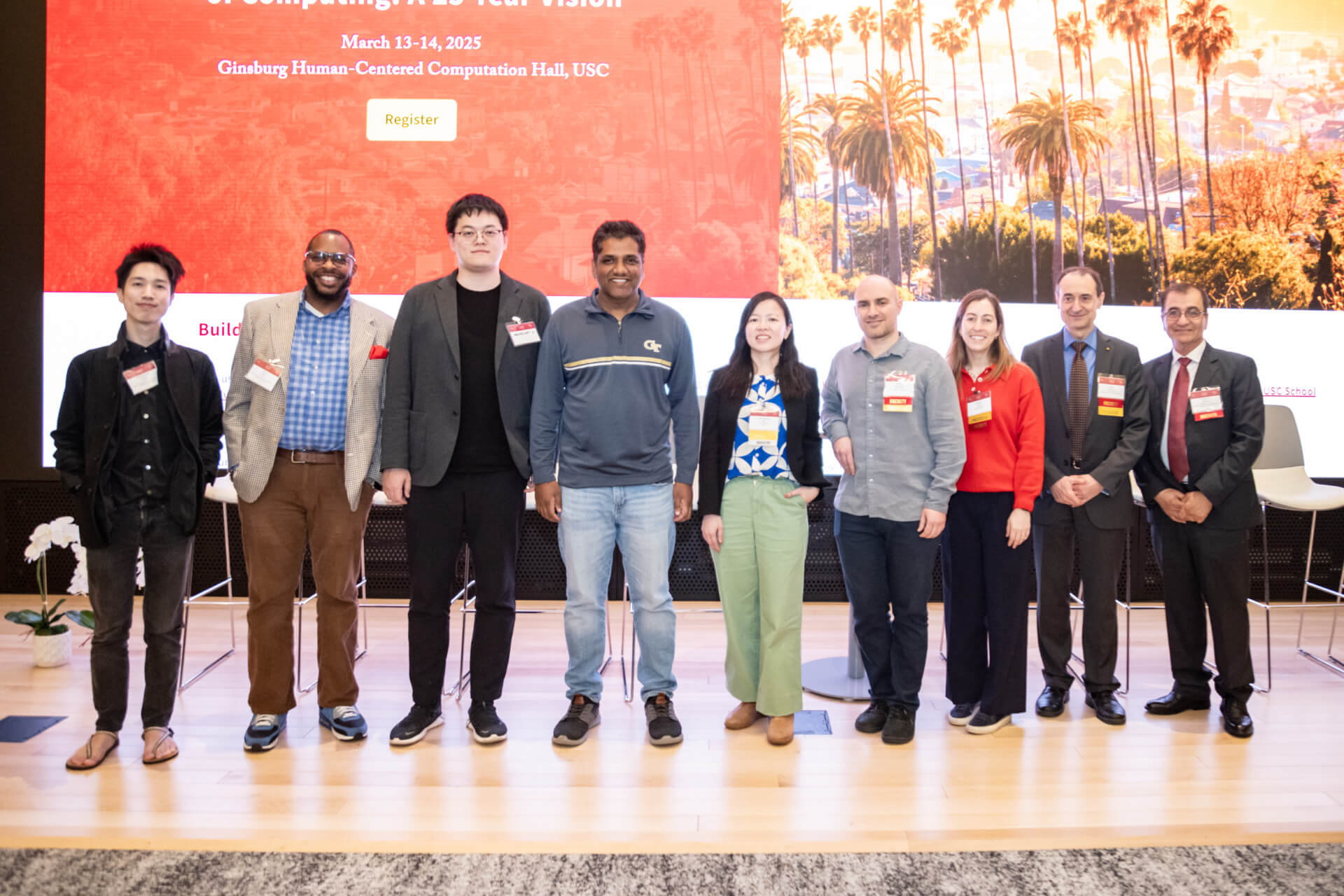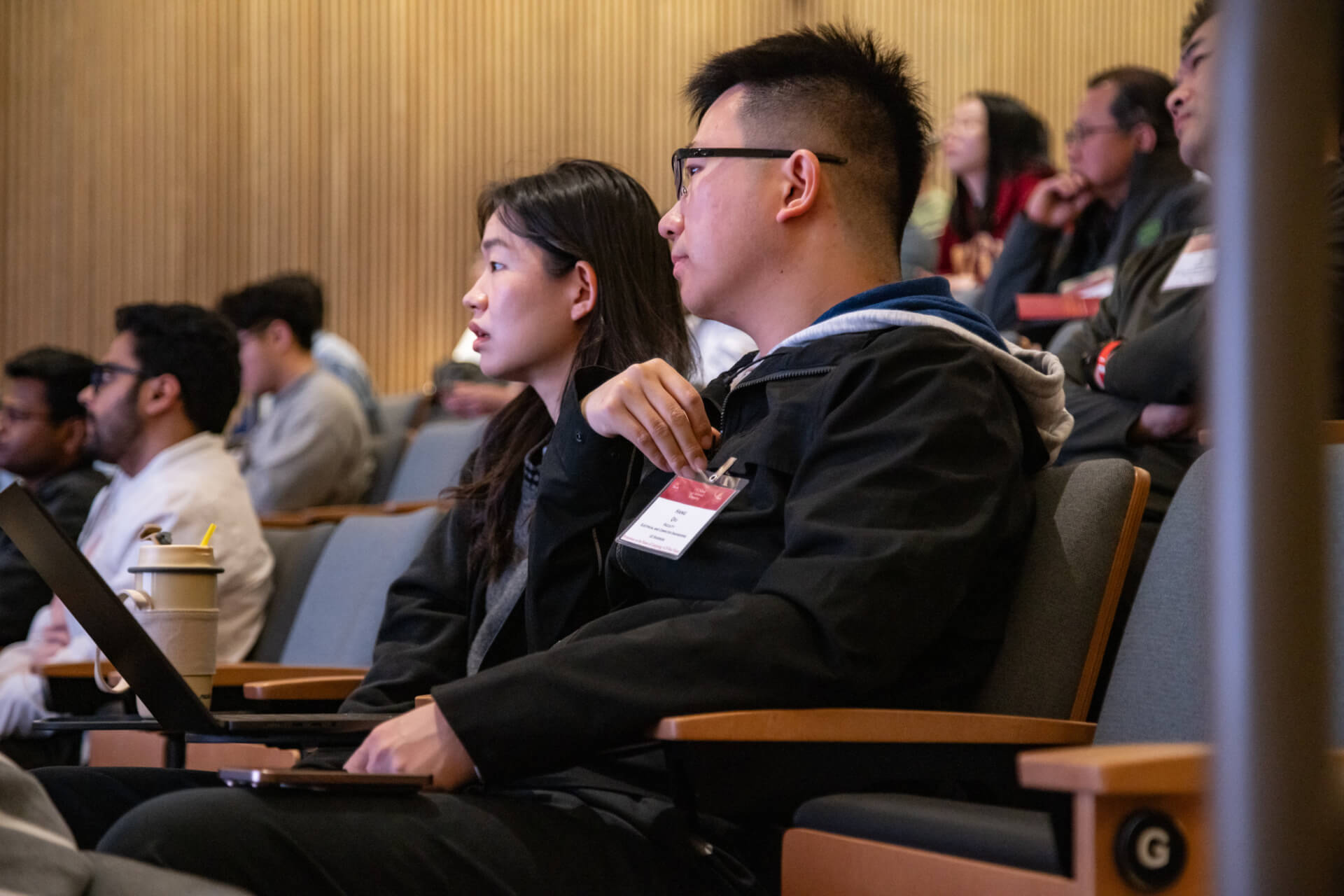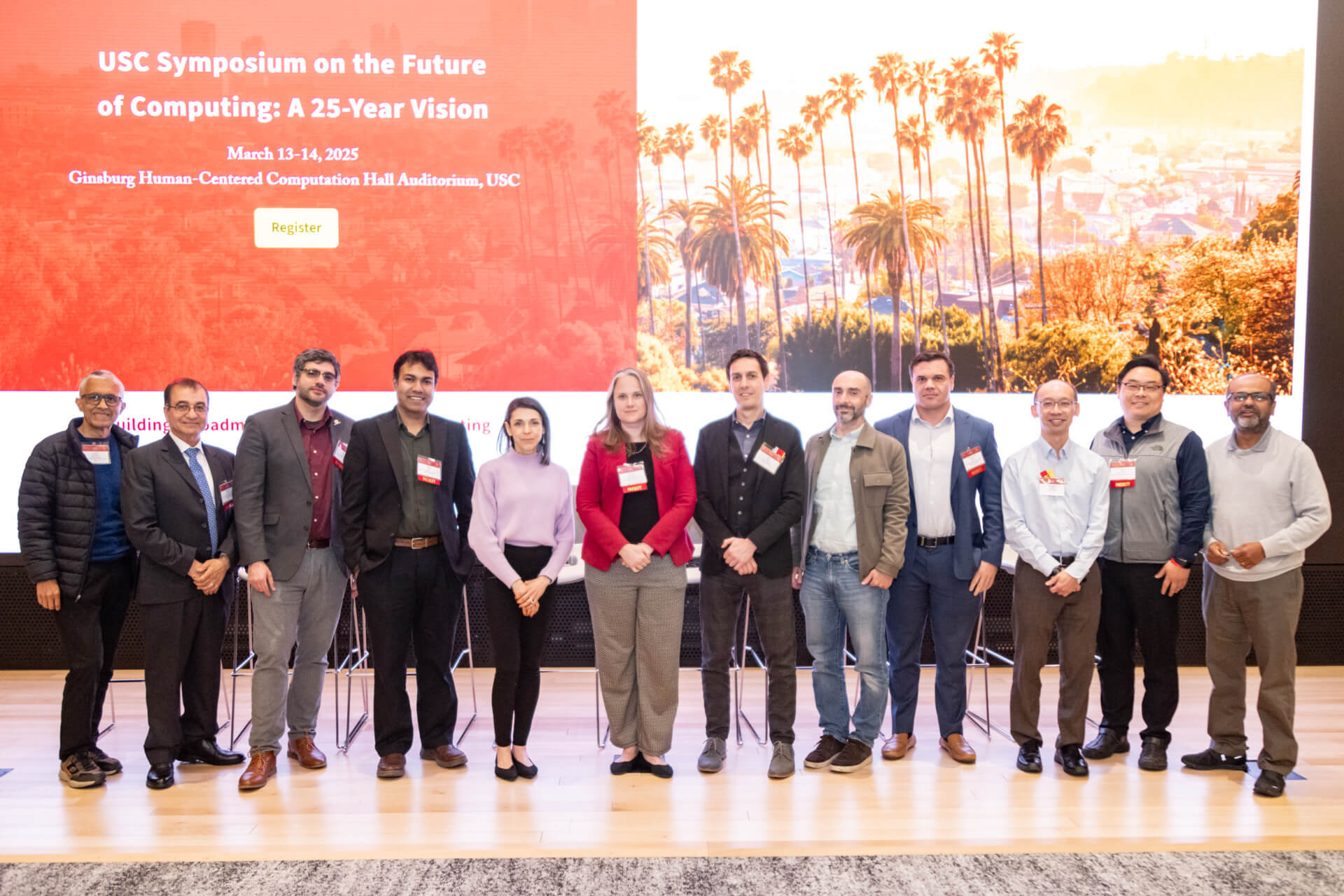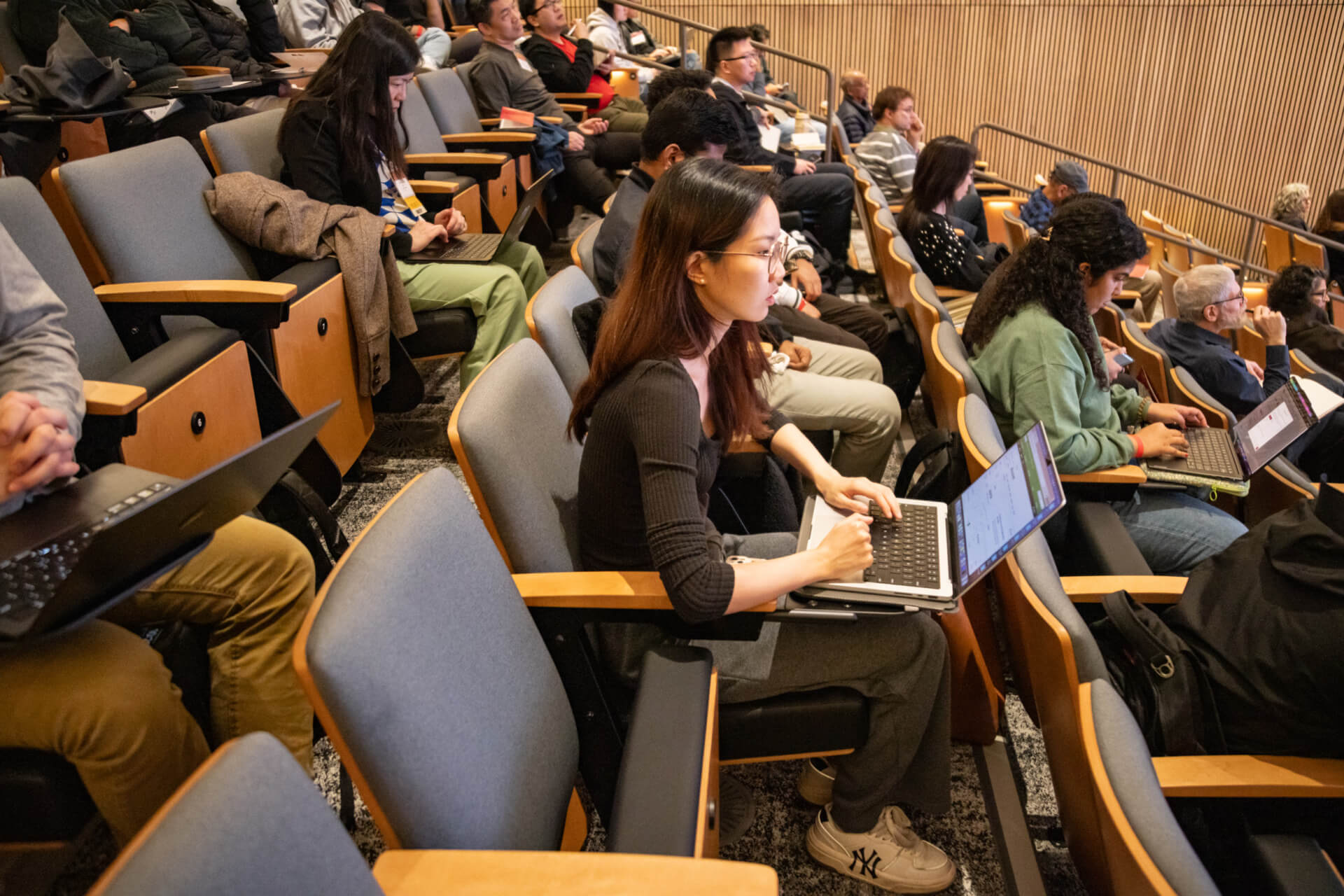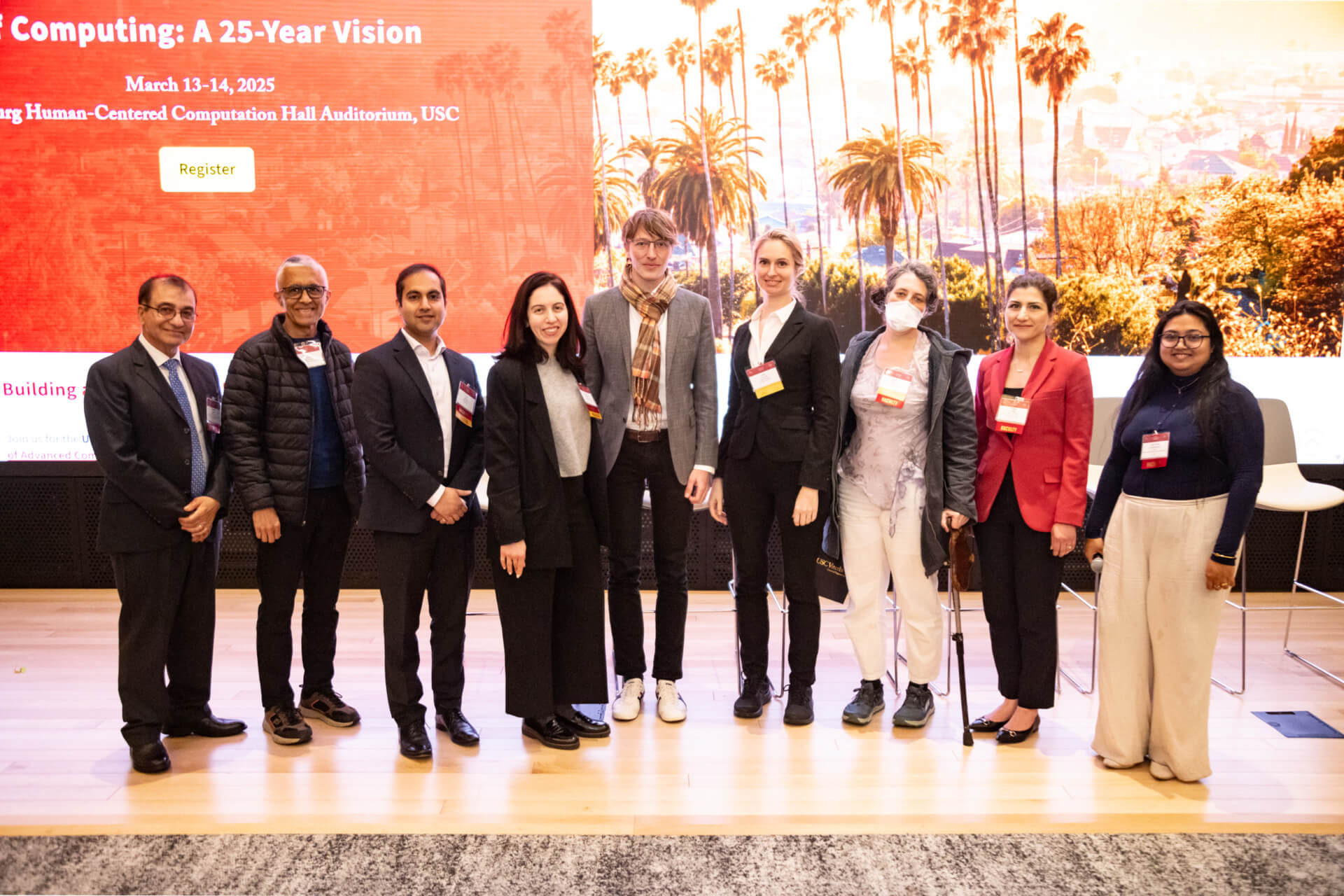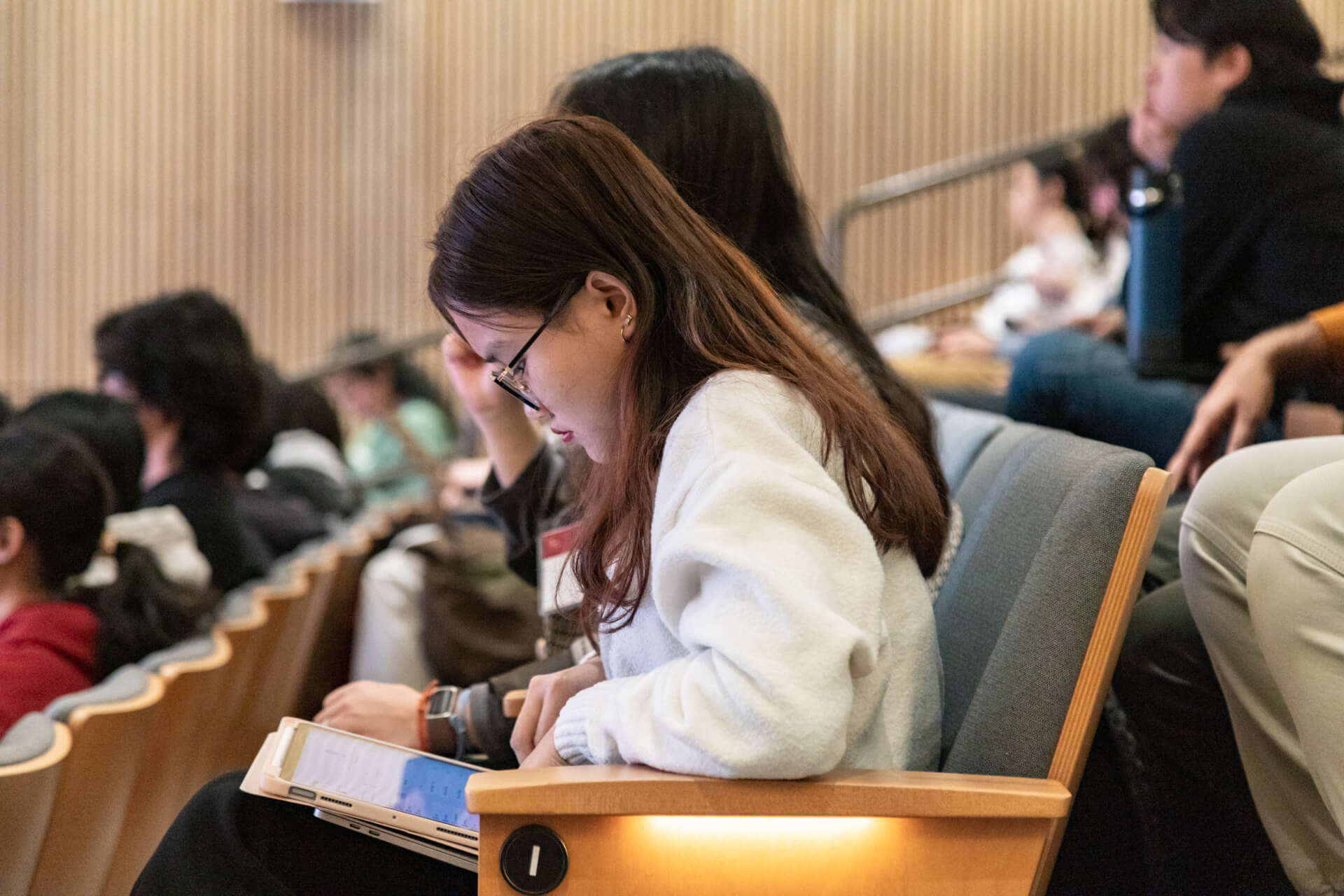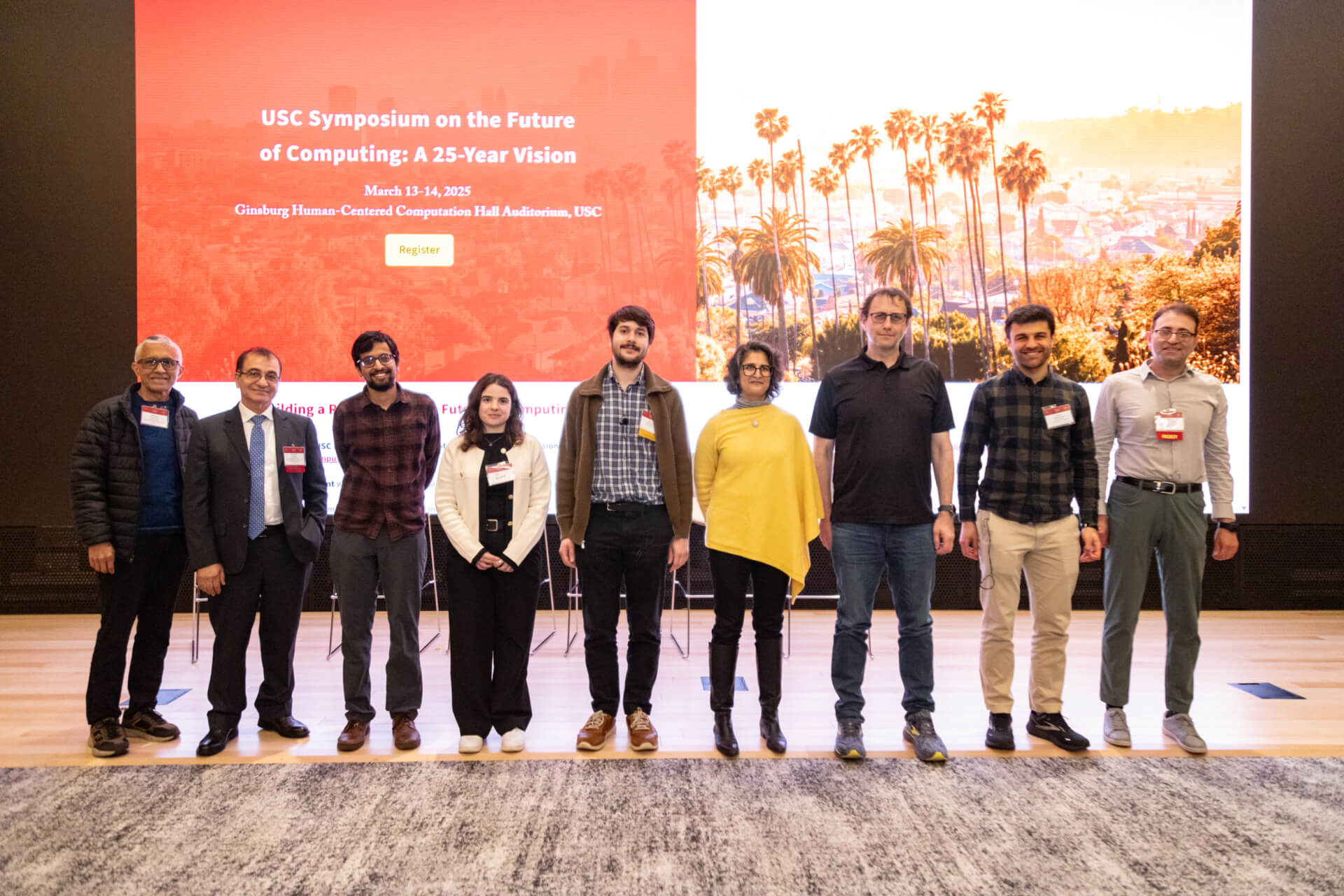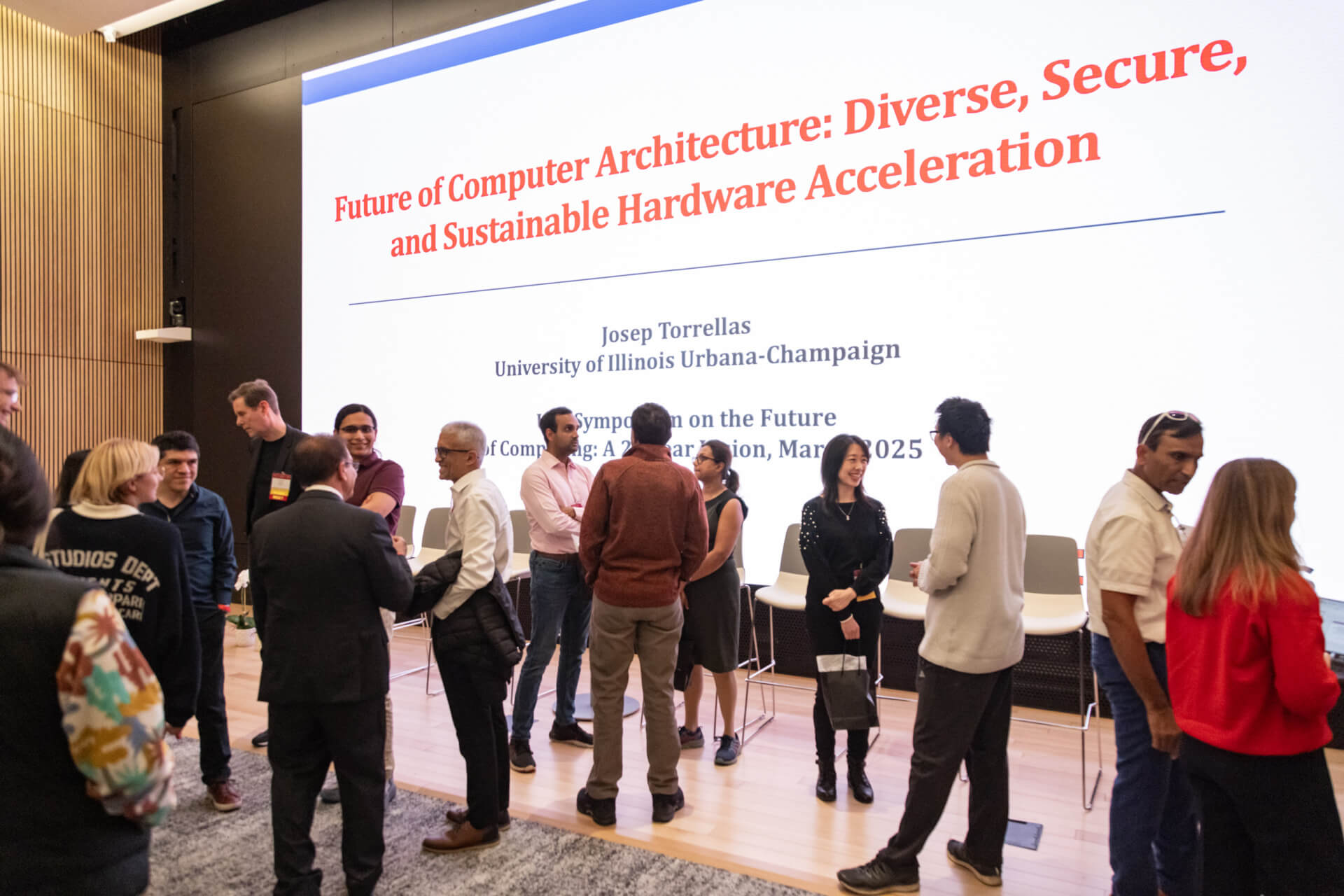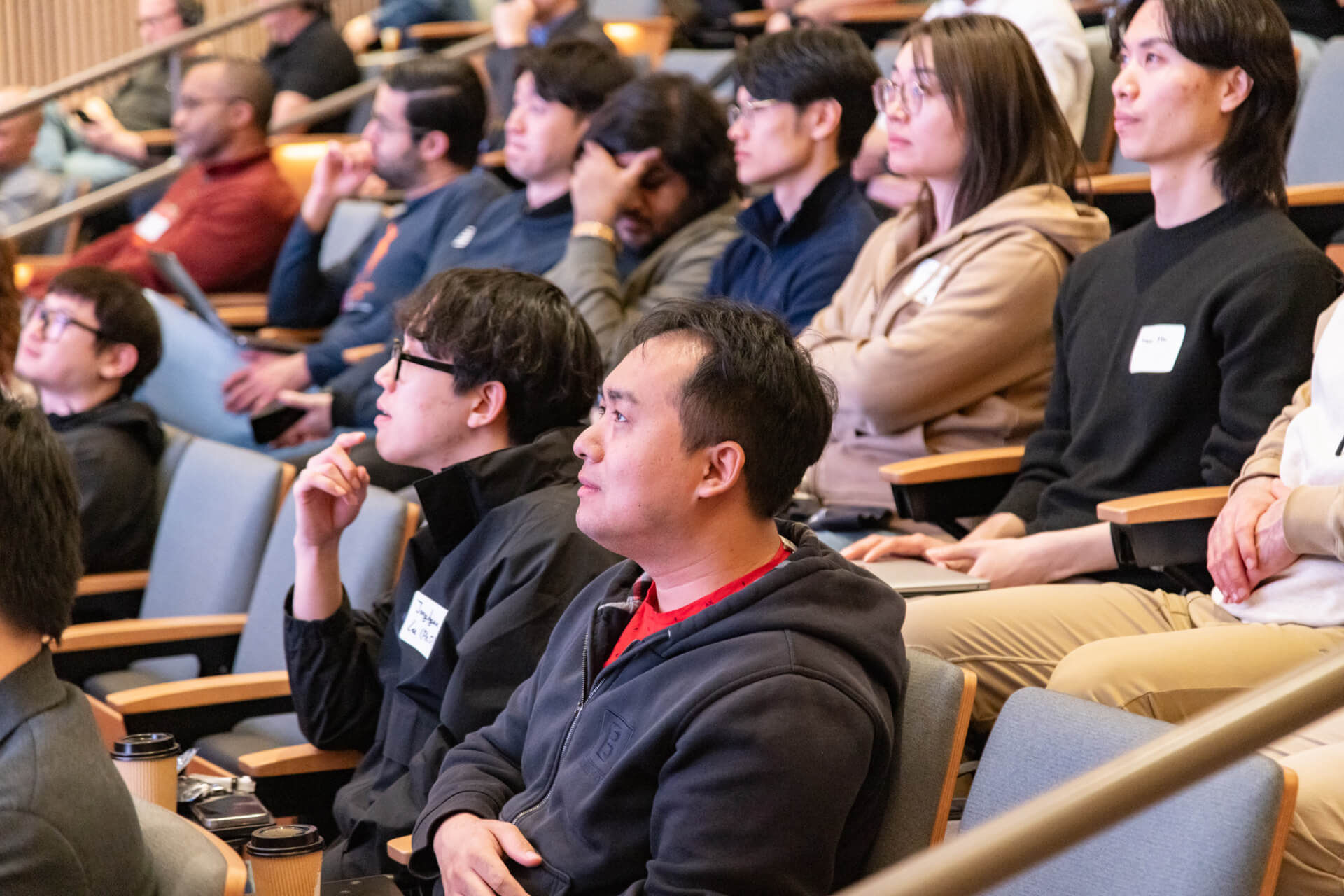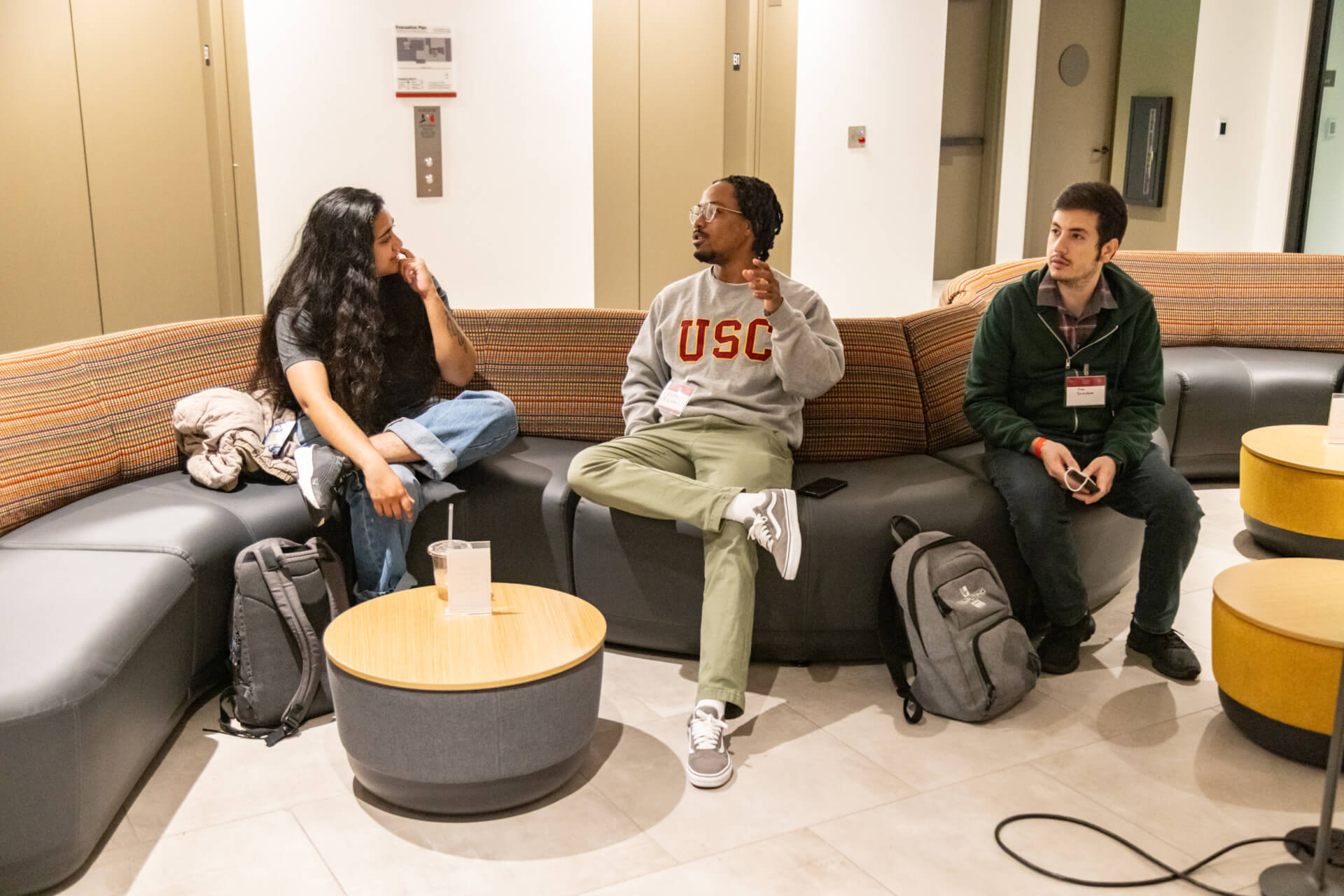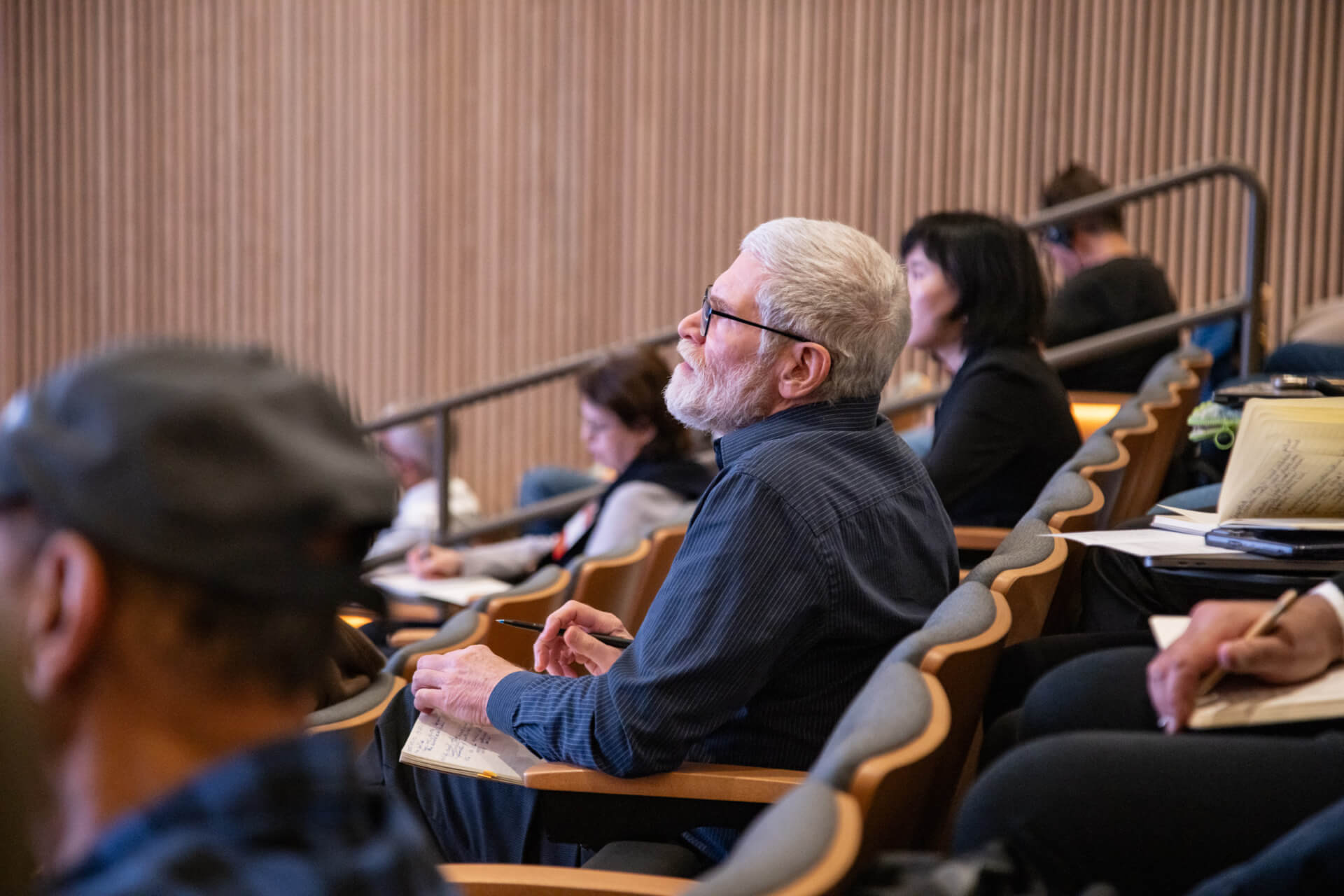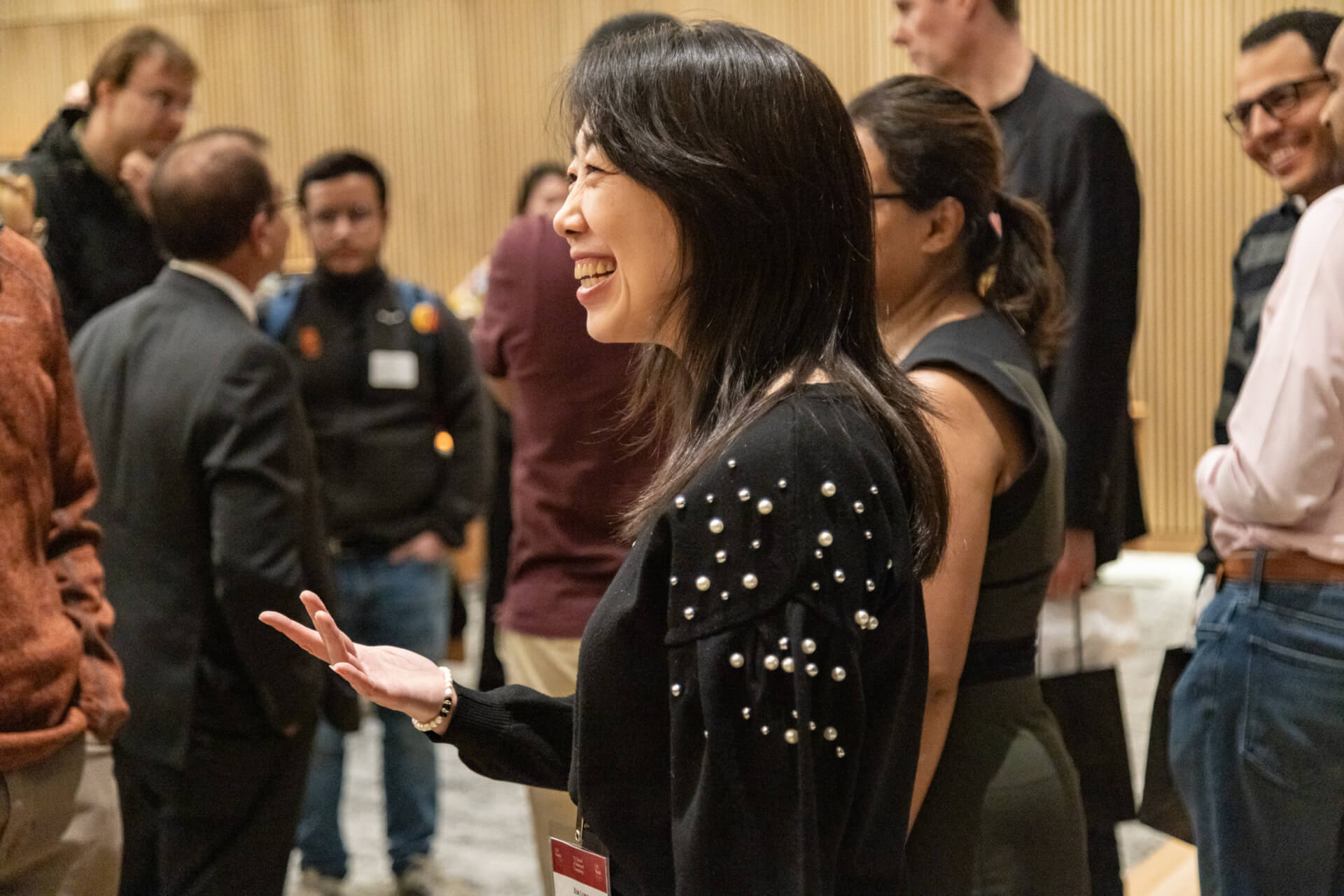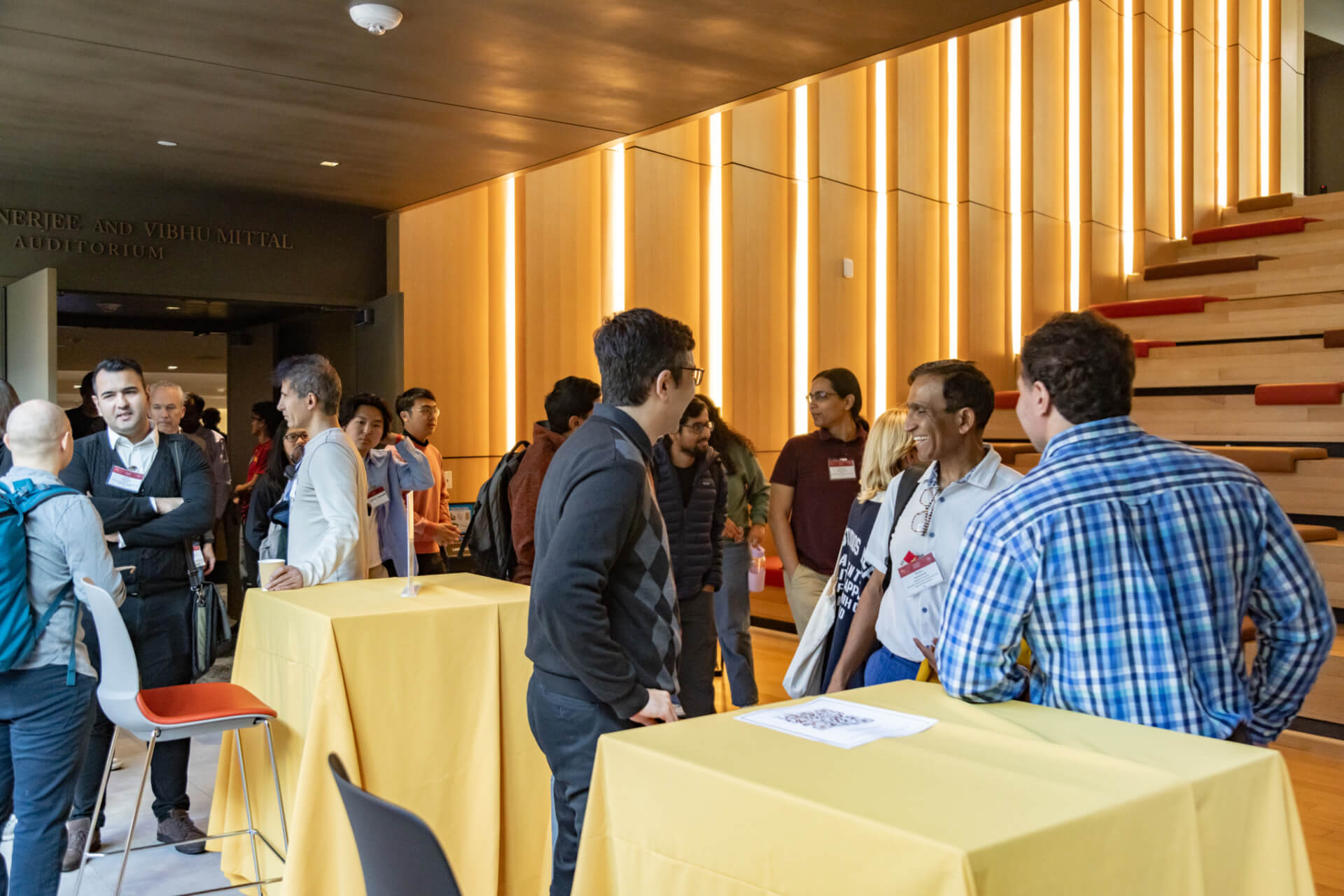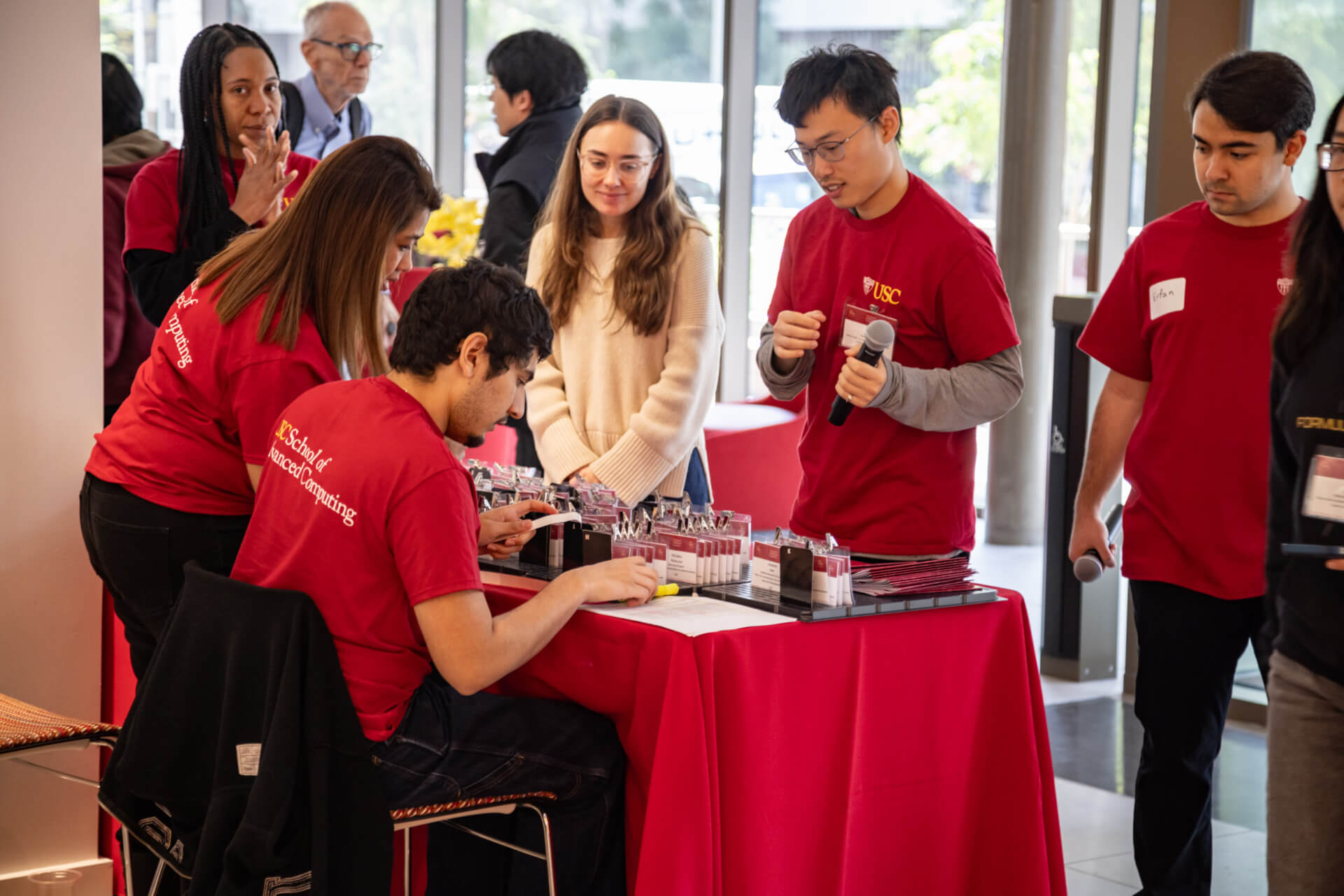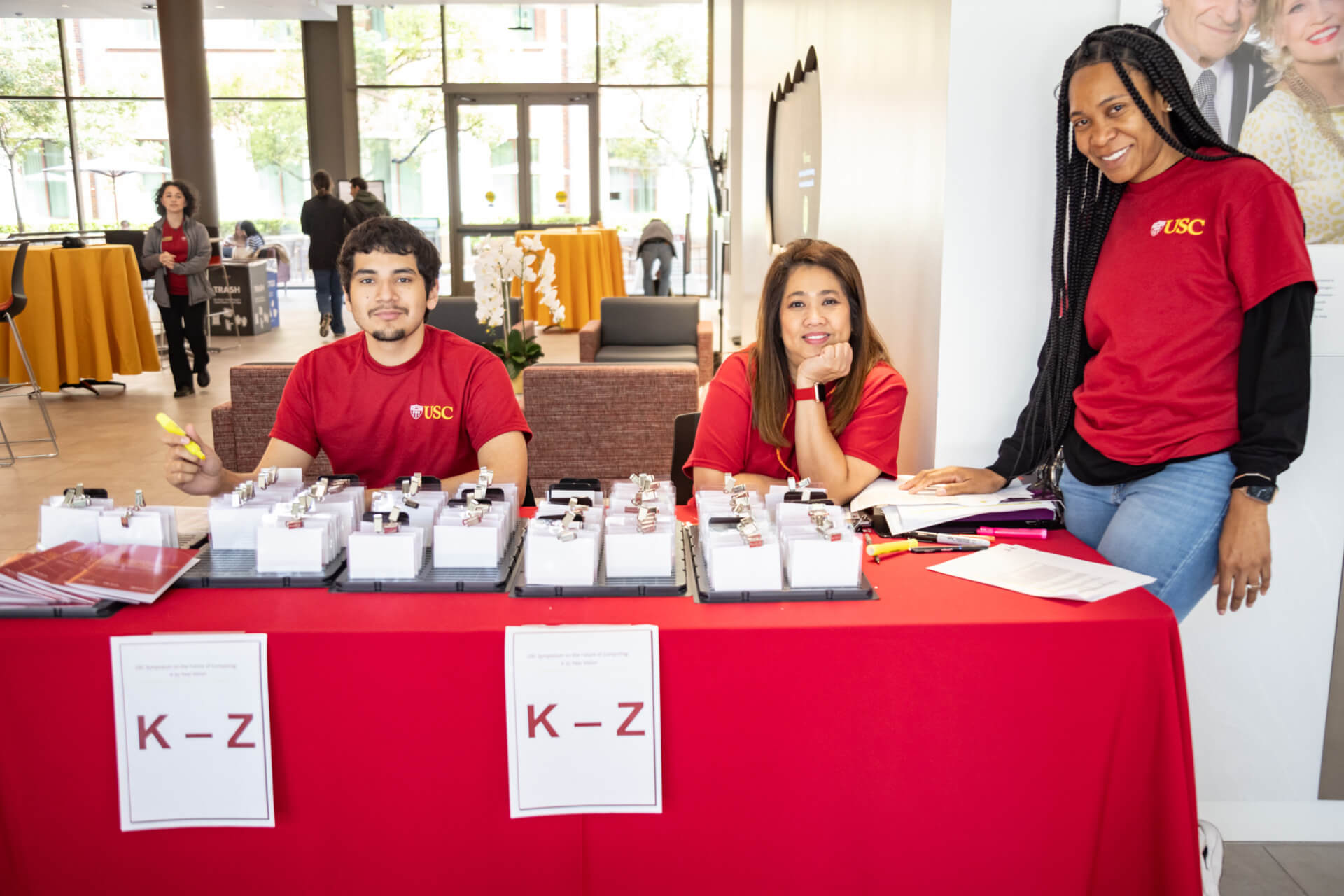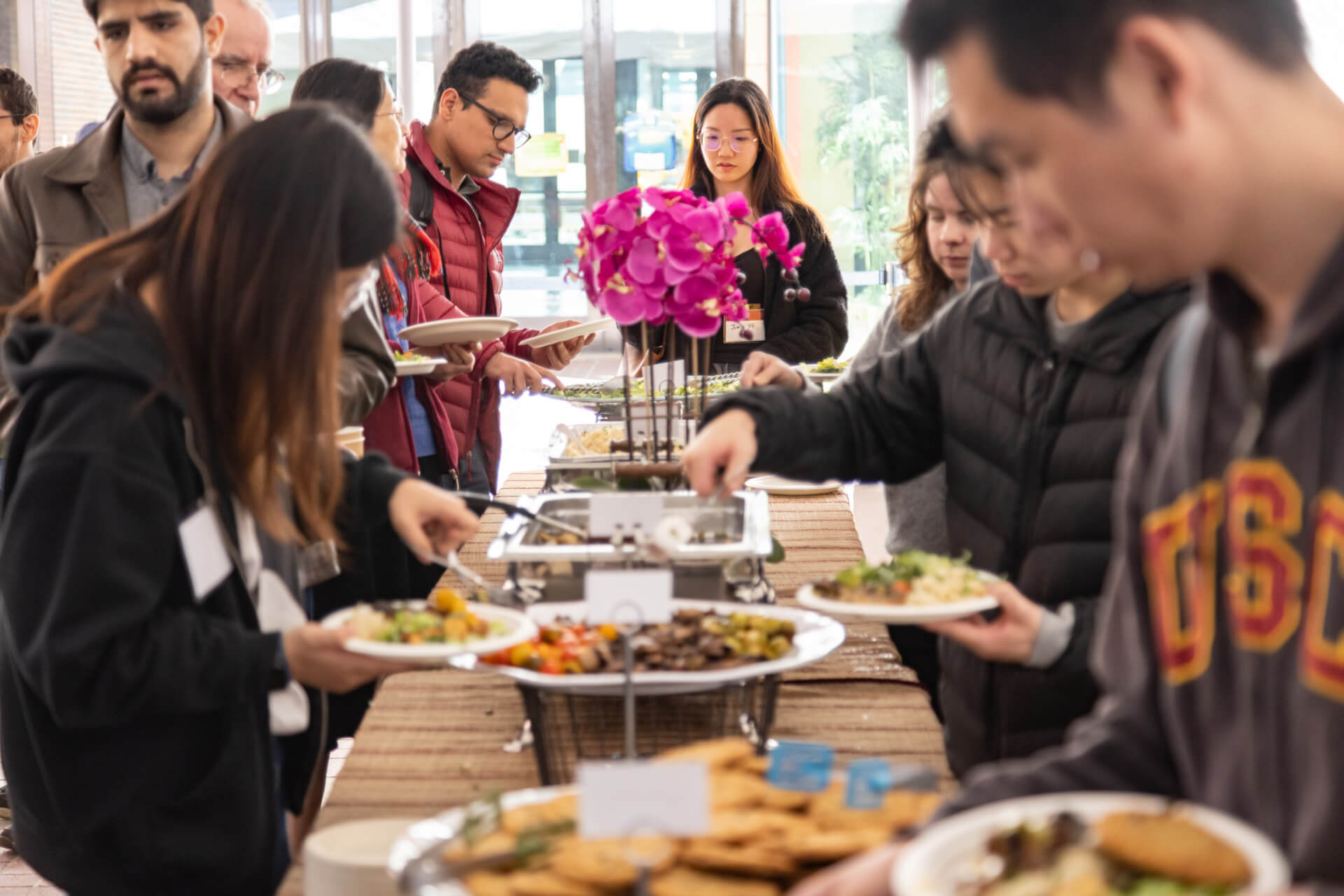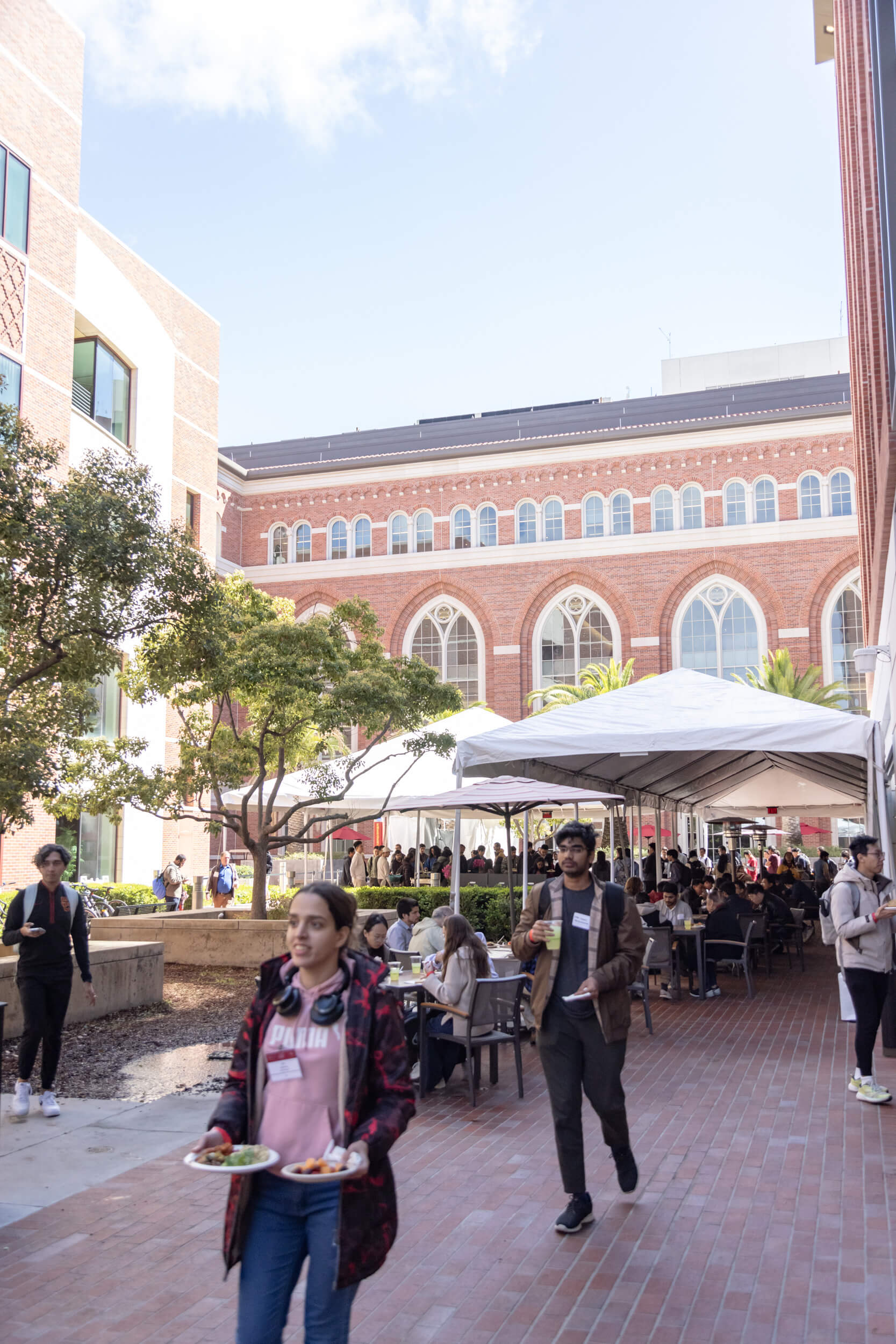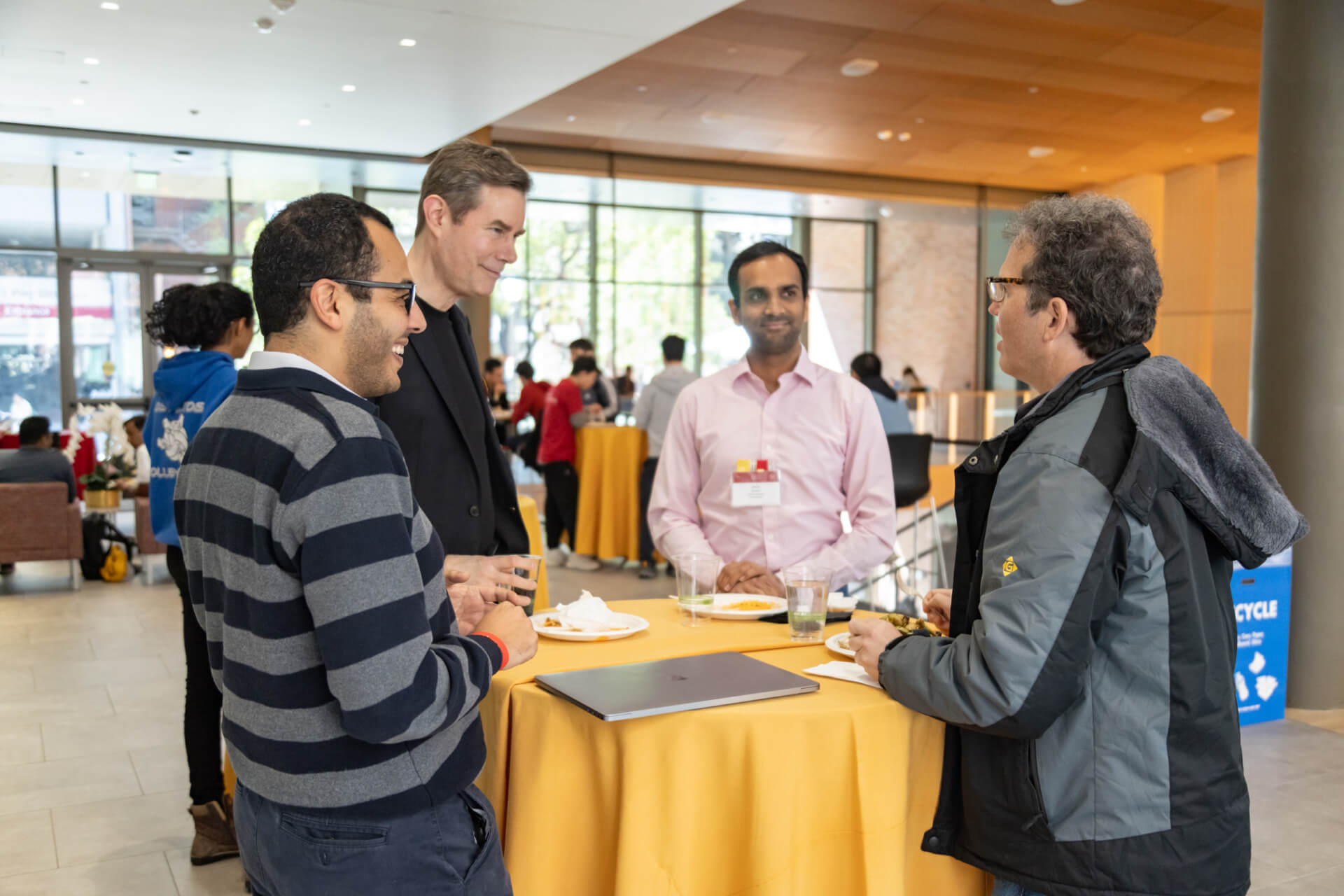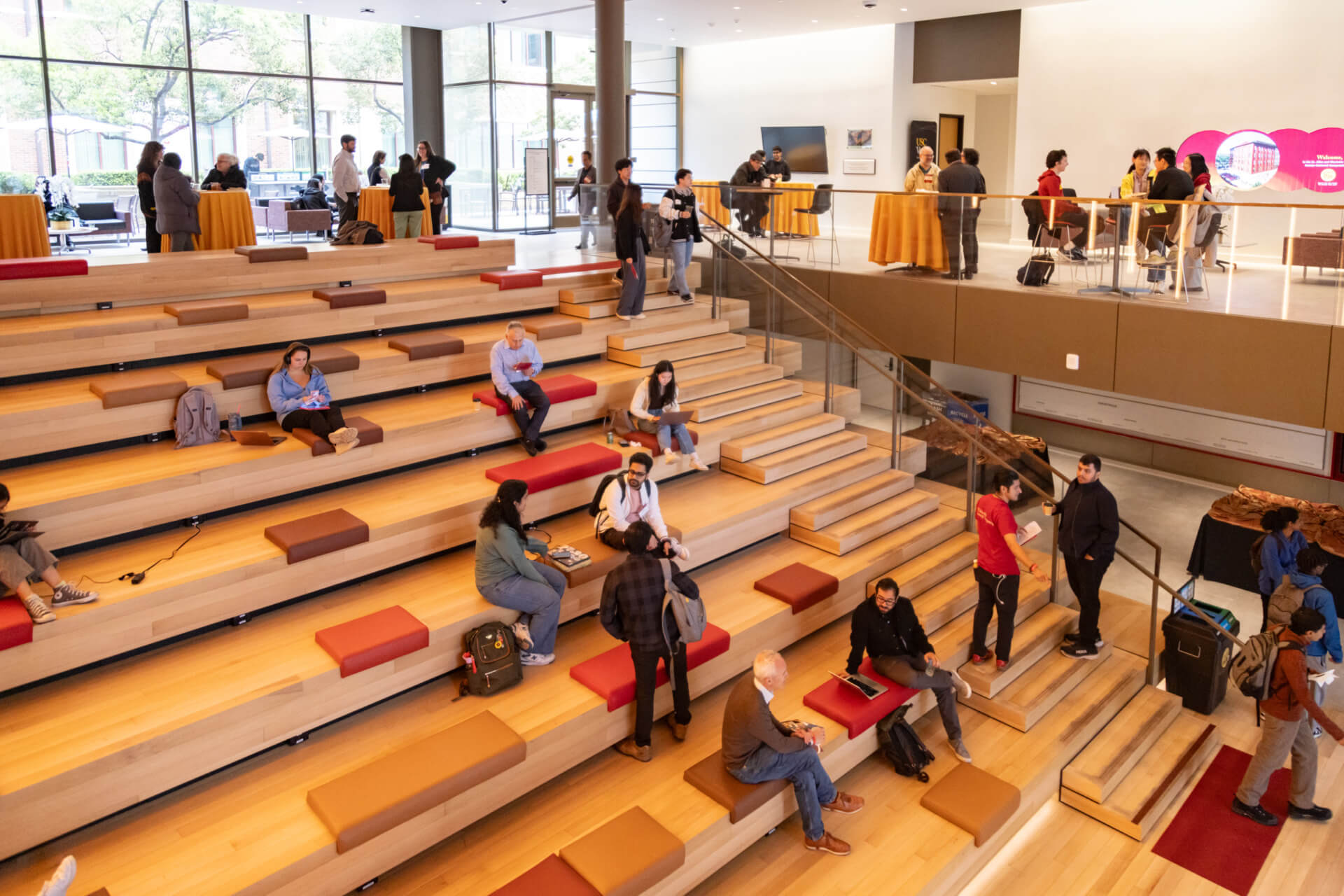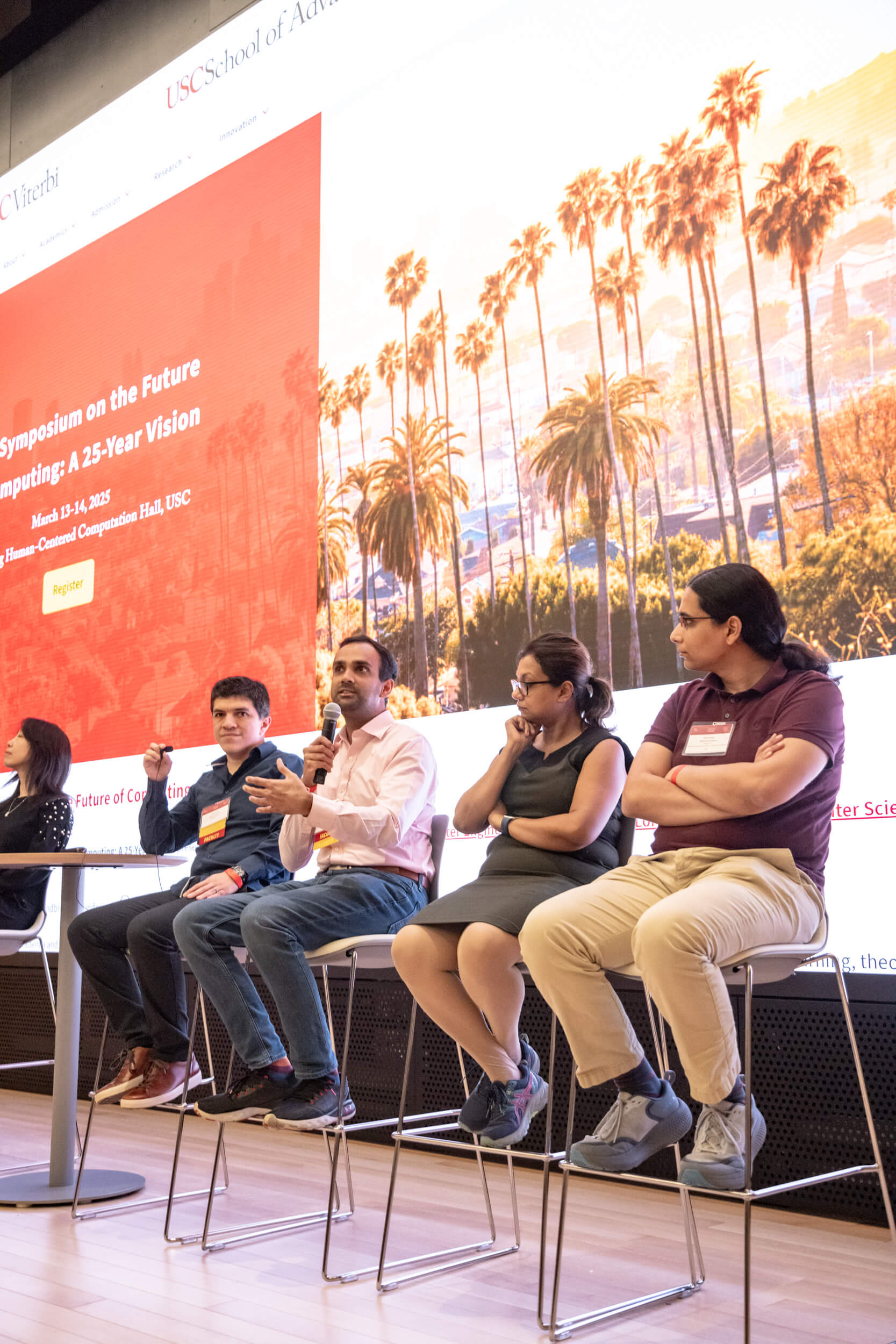
The symposium featured two keynotes, six dynamic panel sessions and thought-provoking session talks by more than 25 session speakers. All photos/Noe Montes.
Humanity is on the brink of a “quantitative leap” in computing — one that may redefine our relationship with technology through artificial intelligence. But what lies ahead in the next quarter century? On March 13-14, 2025, researchers and industry leaders explored this question at the USC Symposium on the Future of Computing: A 25-Year Vision, presented by the USC School of Advanced Computing‘s two departments: the Ming Hsieh Department of Electrical and Computer Engineering and the Thomas Lord Department of Computer Science.
Hosted at the state-of-the-art Ginsburg Human-Centered Computation Hall, this two-day event brought together visionary leaders from academia and industry to explore the full computing stack — from groundbreaking advances in hardware to the frontiers of AI, software and human-computer interaction.
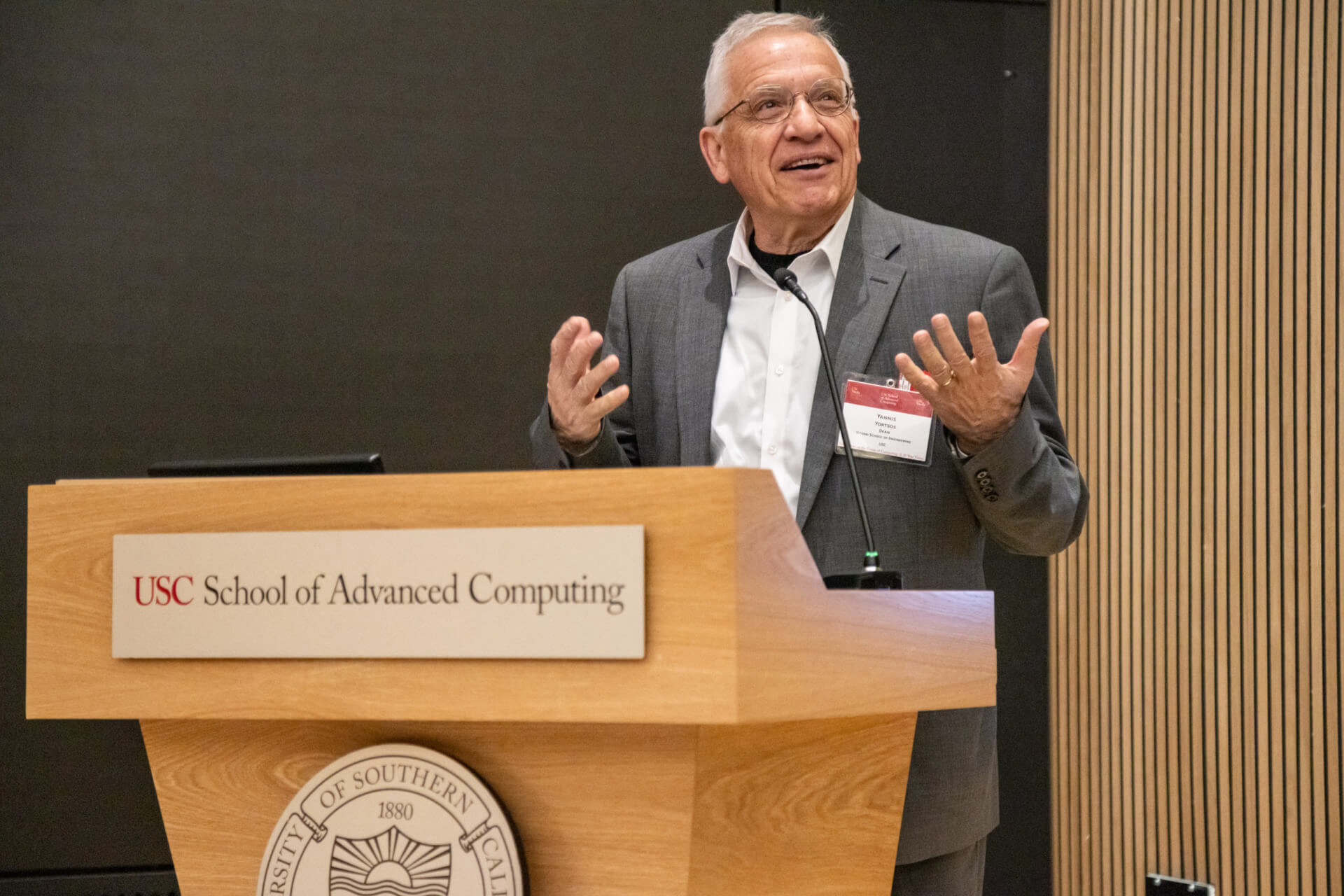
USC Viterbi Dean Yannis Yortsos: “Technology and humanity are intertwined as never before.” The new USC School of Advanced Computing is a unit of the USC Viterbi School of Engineering.
More than just a showcase of ideas, the symposium aimed to drive forward solutions to society’s most pressing challenges, with two keynotes, six dynamic panel sessions and thought-provoking session talks by more than 25 session speakers.
“In this symposium, we want to define a clear roadmap for the future of computing, a challenging yet crucial task,” said event co-chair Massoud Pedram, a professor of electrical and computer engineering. “The computing landscape is evolving rapidly, and it’s essential that we understand the forces and trends shaping its future, while also identifying the challenges that lie ahead.”
Interdisciplinary collaboration as a driving force
Even during an uncharacteristically rainy week in Los Angeles, more than 300 guests — including faculty, staff, and students — gathered at the event to engage with presentations, ask questions and network.
Session speakers included researchers from top institutions nationwide, including MIT, Carnegie Mellon, Columbia, the University of California, Cornell and Stanford, alongside industry leaders from Microsoft and Meta. The sessions spanned six distinct tracks: “Shaping Tomorrow’s Intelligence”; “Disruptive Innovations in Software and Systems”; “Diverse, Secure and Sustainable Hardware Acceleration”; “Innovations in Human-Computer Interaction”; “New Frontiers of Theory in the Age of ML, AI and Data Science”; and “Transforming Technologies – From Novel Devices to Integrated Circuits.”
The broad scope was intentional, according to Pedram and fellow co-chair, Ramesh Govindan, a professor of computer science and electrical and computer engineering. Their aim? To unite experts from across computing disciplines to tackle this era’s uniquely complex challenges.
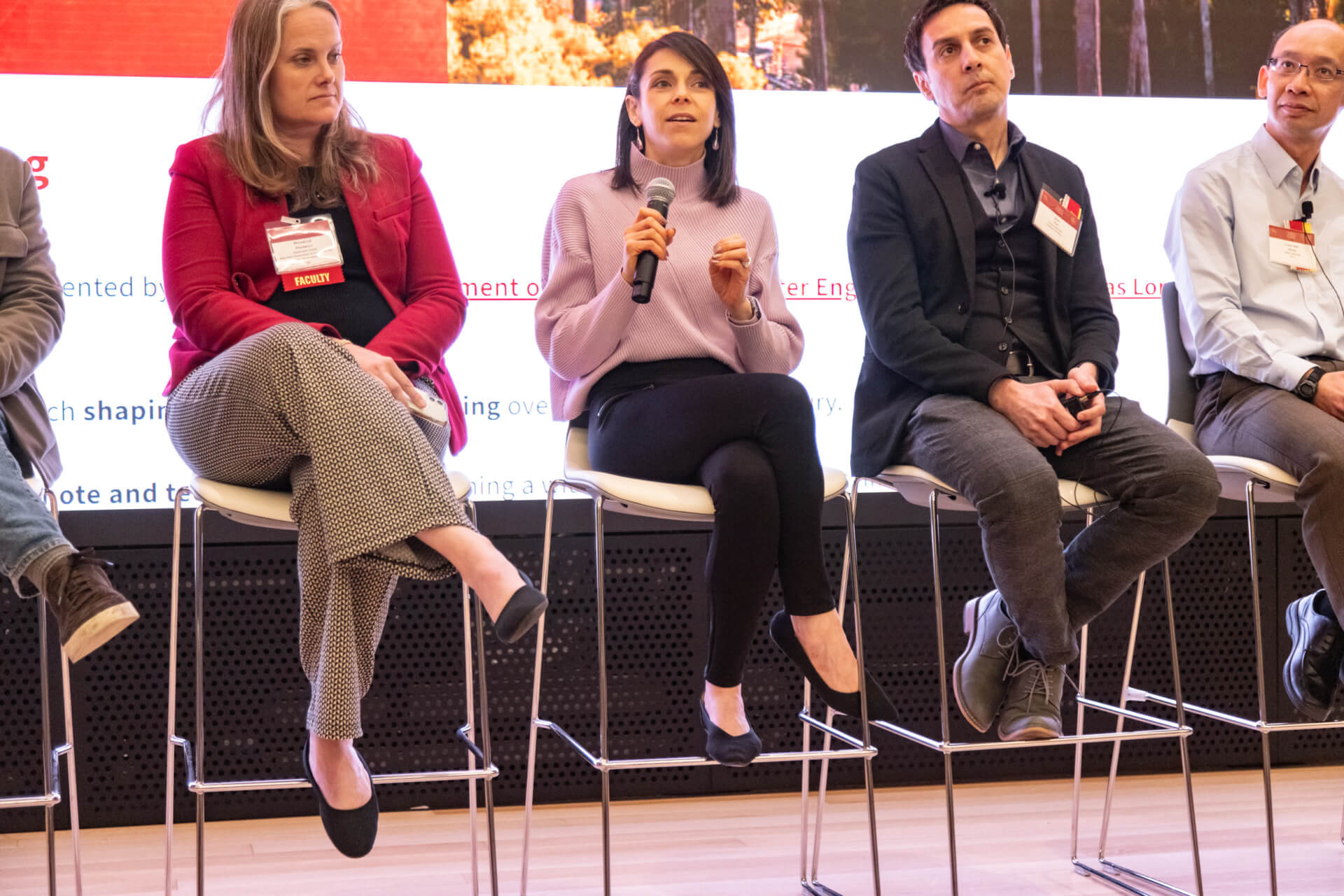
Session 6 panel: “Transforming Technologies – From Novel Devices to Integrated Circuits.”
Amidst the speakers’ diverse backgrounds, several recurring themes emerged, offering a glimpse into the future of computing. Among them, interdisciplinary collaboration stood out as a driving force, reinforcing the mission at the heart of the event.
“One of the key themes that stood out from the symposium was the broad and deep impact of AI, particularly in scientific discovery,” said session speaker Rose Yu, an associate professor at UC San Diego, who earned her PhD in computer science at USC. “From accelerating research breakthroughs to transforming entire fields, AI is opening new frontiers in computing. The discussions underscored both the tremendous excitement and the responsibility we have as researchers to guide its development over the next 25 years. It was especially meaningful to return to my alma mater and see how the community continues to push the boundaries of innovation.”
This theme was echoed by Gaurav Sukhatme, director of the USC School of Advanced Computing, in his welcome address. “Whether you talk to modern economists or people in the medical school, in business or the law: disciplines themselves are undergoing a tremendous change, and serious computational work is happening in a variety of different disciplines,” said Sukhatme, the Donald M. Alstadt Chair and professor of computer science and electrical and computer engineering.
On day two of the event, in his final remarks, Govindan expressed gratitude to everyone who made the event possible: notably Yannis Yortsos, dean of the USC Viterbi School of Engineering, Sukhatme, department chairs Richard Leahy and Nenad Medvidovic, and USC’s 12 faculty co-chairs who brought together their colleagues and peers to share their insights.
“This gathering has not only showcased groundbreaking ideas but also underscored the power of collaboration in shaping the future of computing,” said Govindan. “Thank you to all who contributed their expertise, energy and vision to make this event a success.”
Keynote Insights
Keynote speakers Amin Vahdat (Google) and Doina Precup (McGill University and Mila/Google DeepMind) delivered impactful insights on AI’s evolving role in technology.
On day one, Vahdat, Google fellow and VP of ML, Systems, and Cloud AI, explored the rapidly changing landscape of AI and its impact on hardware and power systems. He explained that, as AI and machine learning evolve, traditional methods of hardware management and power optimization are no longer sufficient to meet the growing computational and data distribution demands. Vahdat emphasized that to fully harness AI’s potential, continuous adaptation and innovation in performance-optimizing software are crucial, as the systems driving AI must constantly evolve to support its increasing capabilities.
“We have entered the epoch of rapidly innovating performance-optimizing software.” Amin Vadhat.
On day two, Precup, an associate professor and Canada-CIFAR AI Chair at McGill University and research team leader at Google DeepMind, took the stage to share insights into how reinforcement and deep learning theories could enable AI to develop reflective learning and abstract reasoning abilities. This learning process allows AI to predict outcomes, learn from mistakes and develop novel strategies, as evidenced by AI agents teaching themselves to excel at complex tasks, like games. Precup suggested that this process could empower AI to address some of the world’s most critical questions, possibly bringing us closer to achieving breakthroughs.

Keynote speakers Amin Vadhat and Doina Precup.
Five key takeaways from the USC Symposium on the Future of Computing:
1. AI will transform every industry
A recurring theme across multiple talks was AI’s growing role in scientific discovery and industry applications, from protein design and epidemic modeling, to enhancing coding, streamlining workflows, and augmenting creativity. This transformation must be met with thoughtful regulation, however. Just as society has rules for human intelligence, integrating AI agents and professionals responsibly requires governance structures, said several presenters.
2. The future of computing is interdisciplinary
Several talks demonstrated how collaboration across disciplines is driving innovation. Researchers working at the intersection of computing and biology presented breakthroughs in human-brain computer interfaces, while another panel explored how AI is revolutionizing material sciences, from novel devices to integrated circuits. The experts agreed: true progress depends on crossing disciplinary boundaries, which is one of the key strengths of a university setting.
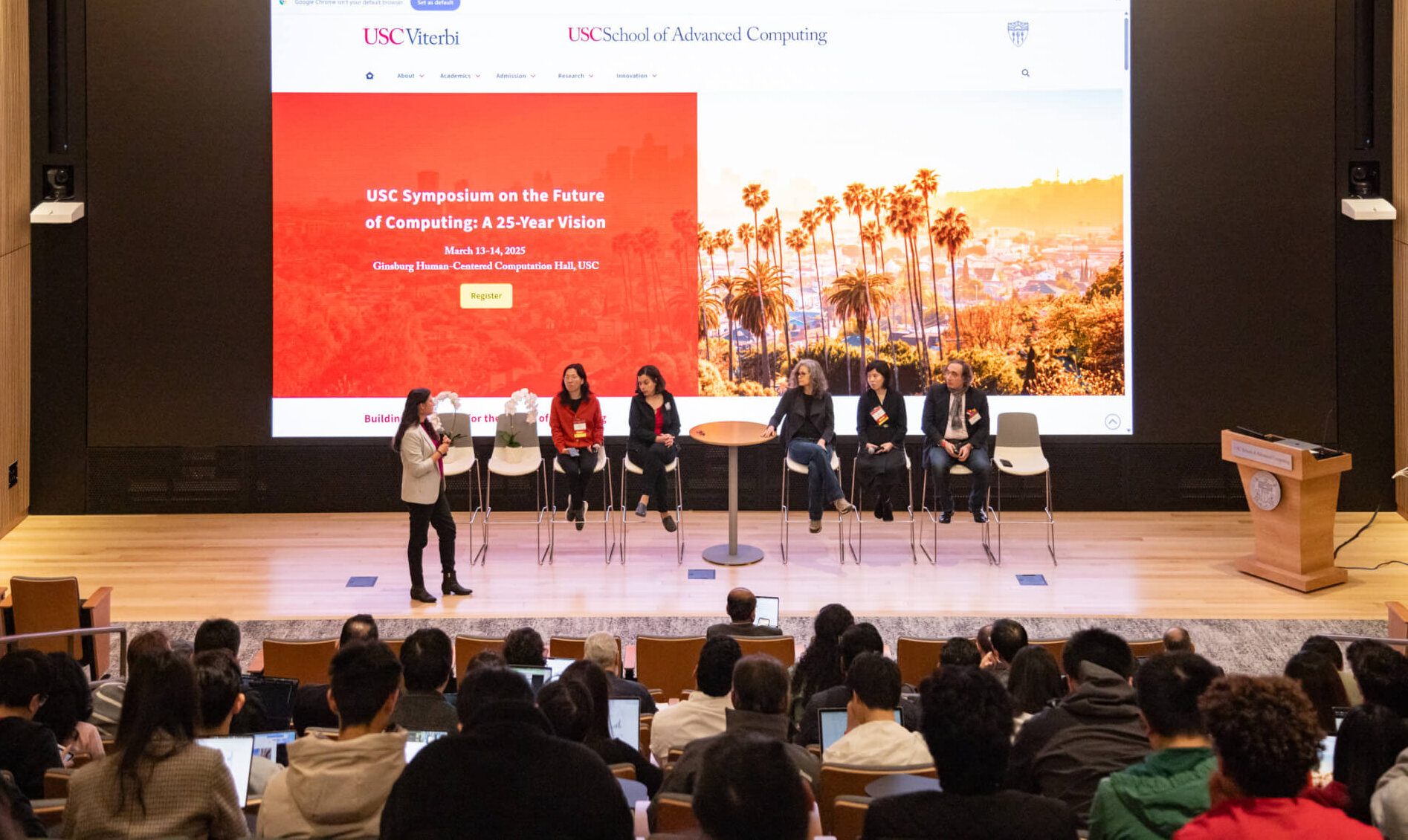
Kicking off the event with panel 1 on AI Horizons – Shaping Tomorrow’s Intelligence.
3. Theories of computing are guiding AI’s evolution
From developing more nuanced, interpretable AI by “asking the right questions,” to understanding the foundational abstractions that give language its depth, speakers underscored the synergy between theoretical research and real-world applications as AI systems advance. Far from being obsolete, foundational research can help us understand not only how AI systems work, but also why they behave the way they do. In fact, theory itself could serve as a key tool to guide AI, especially as it follows its own unique and sometimes unpredictable logic. While AI and LLMs might make headlines, it’s foundational theory that often drives technological advances, said the experts in session 5, which focused on new frontiers for theory in the age of AI.
4. Human-computer interaction is reshaping how we engage with the world
Human-computer interaction is evolving, reshaping not just how we work but how we engage with the world. Machines are no longer mere tools; they influence emotions and social interactions, from AI chatbots subtly altering workplace dynamics to autonomous vehicles triggering unexpected responses. As AI becomes increasingly embedded in daily life, experts shared that fostering adaptive, inclusive interfaces while ensuring human creativity and collaboration remain central to the process is essential.
5. Sustainability is a growing concern (and hardware could help us address it)
As AI’s processing demands surge, the need for more efficient hardware is becoming critical. With data centers projected to consume 44% of U.S. energy by 2030, experts at the symposium stressed that sustainability must be a key focus of innovation. The push for efficiency is driving advancements in AI chips and semiconductor design, but the challenge extends beyond product use — manufacturing remains the biggest contributor to emissions. AI itself may help, predicting carbon footprints and guiding greener processes. As AI’s growing demands on power and hardware become more pressing, the symposium made it clear: to ensure a sustainable future, technology must evolve with efficiency, responsibility, and environmental considerations at the forefront.
Photo highlights:
- Hosted at the state-of-the-art Ginsburg Human-Centered Computation Hall on an uncharacteristically rainy week for Los Angeles
- Attendees in the amphitheater
- “Serious computational work is happening in a variety of different disciplines.” Gaurav Sukhatme
- More than 300 guests, including students, faculty and staff, attended the symposium
- Event co-chairs Ramesh Govindan and Massoud Pedram
>>VIEW THE FULL PHOTO ALBUM
Published on March 27th, 2025
Last updated on June 12th, 2025




